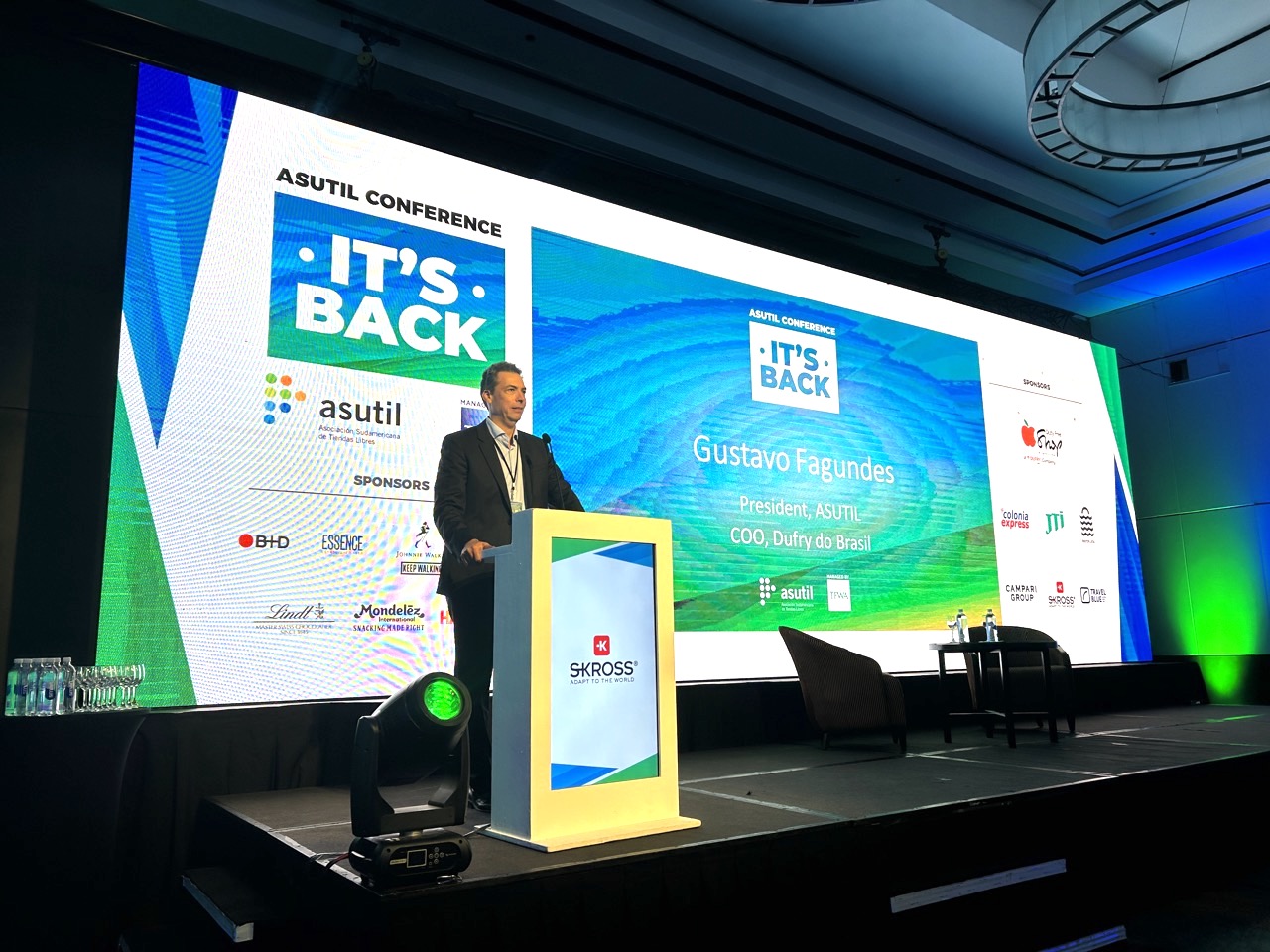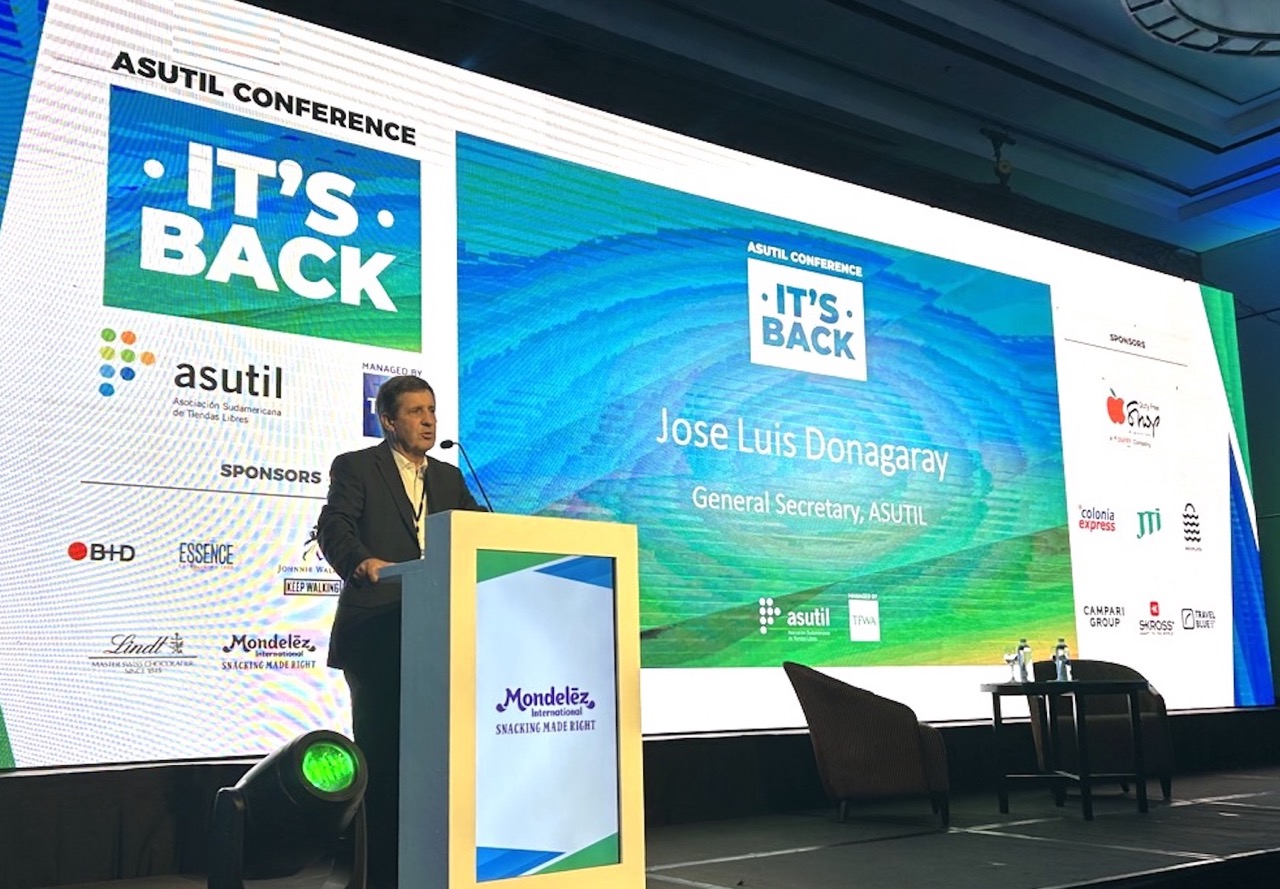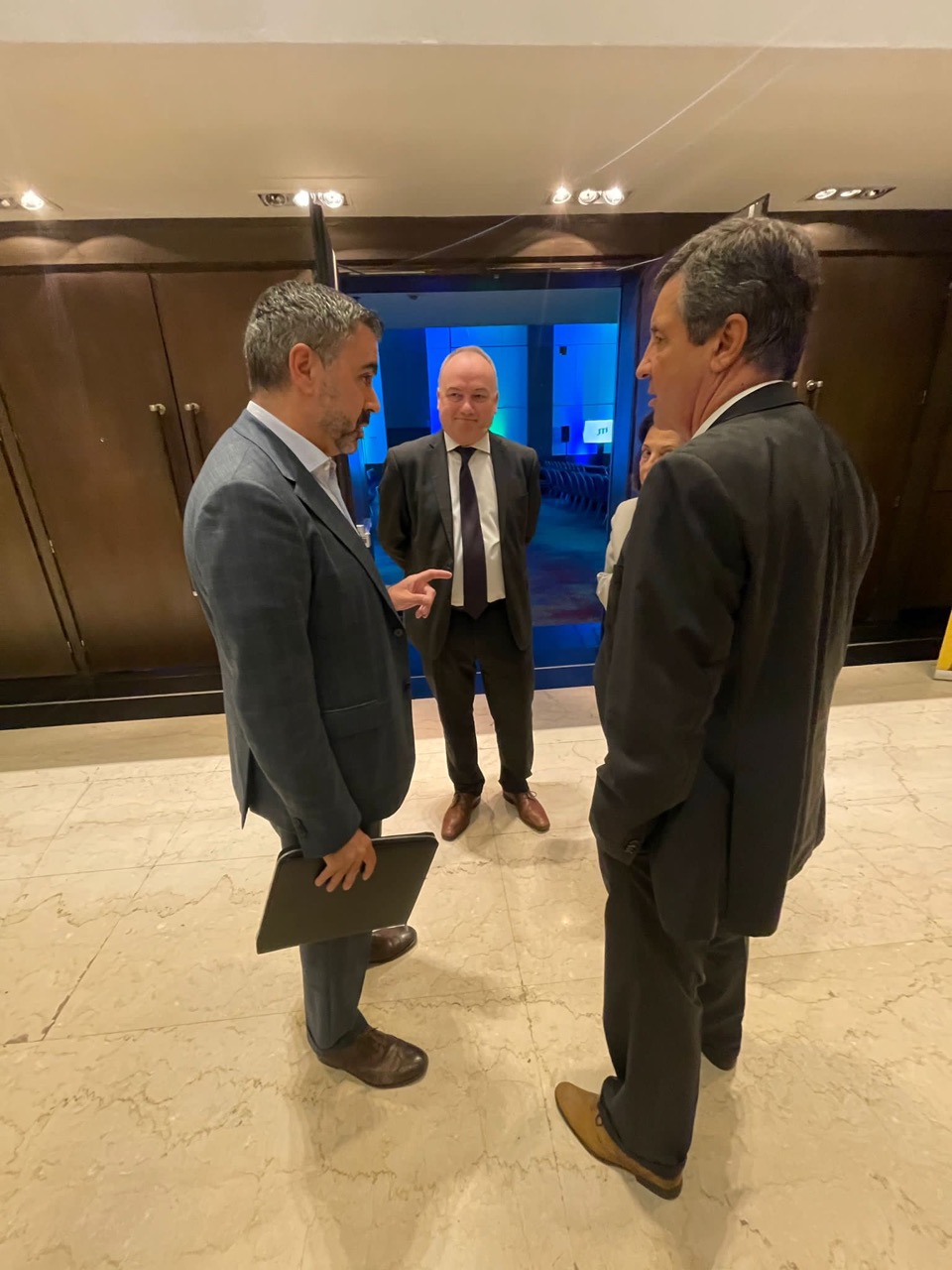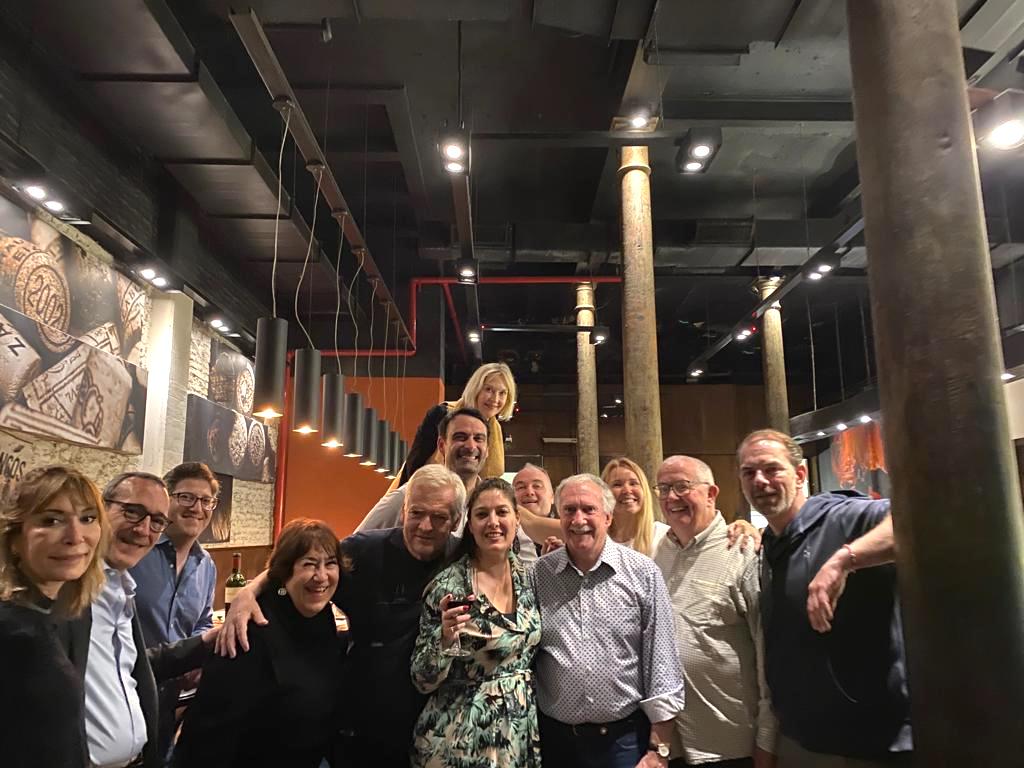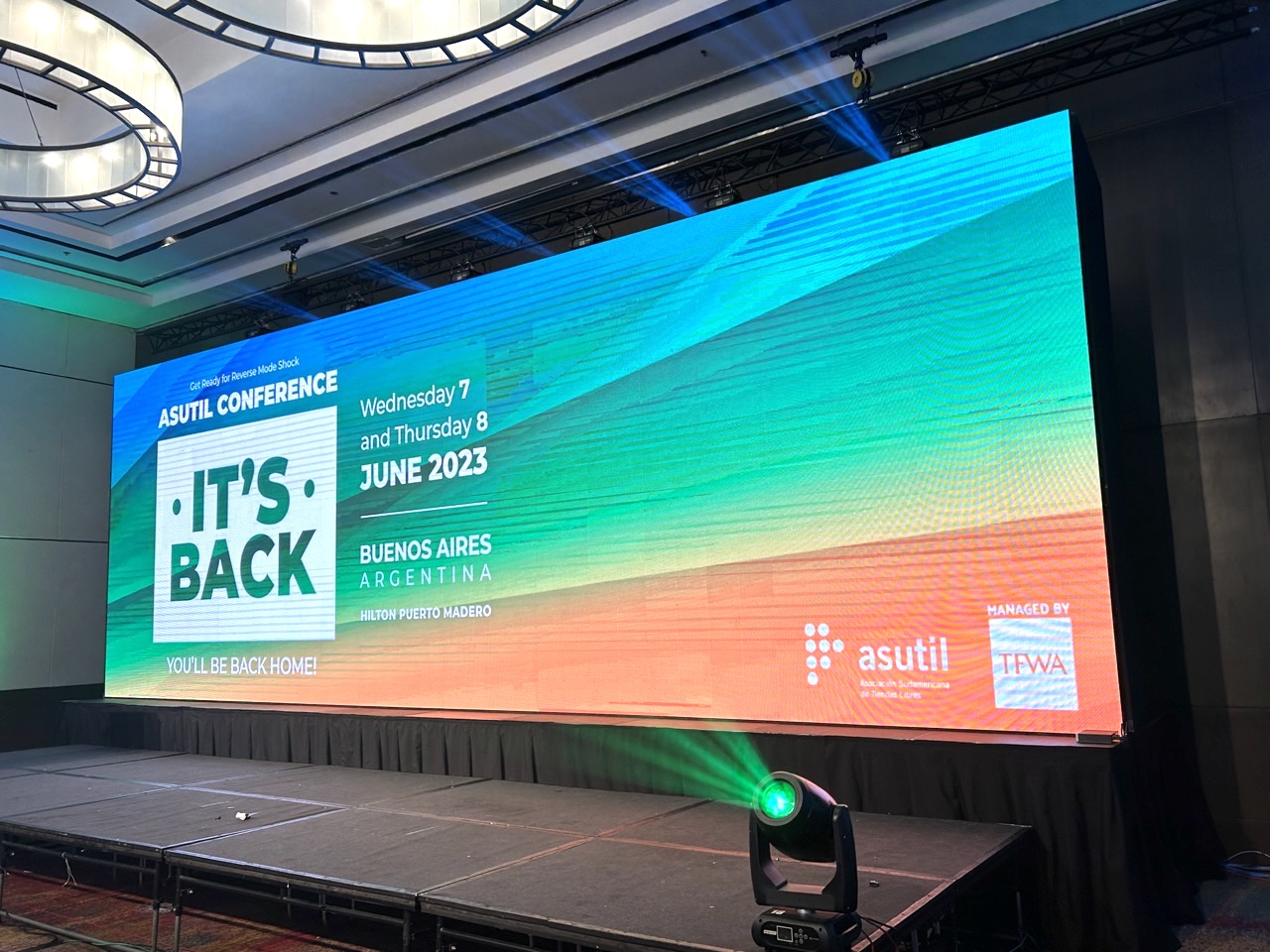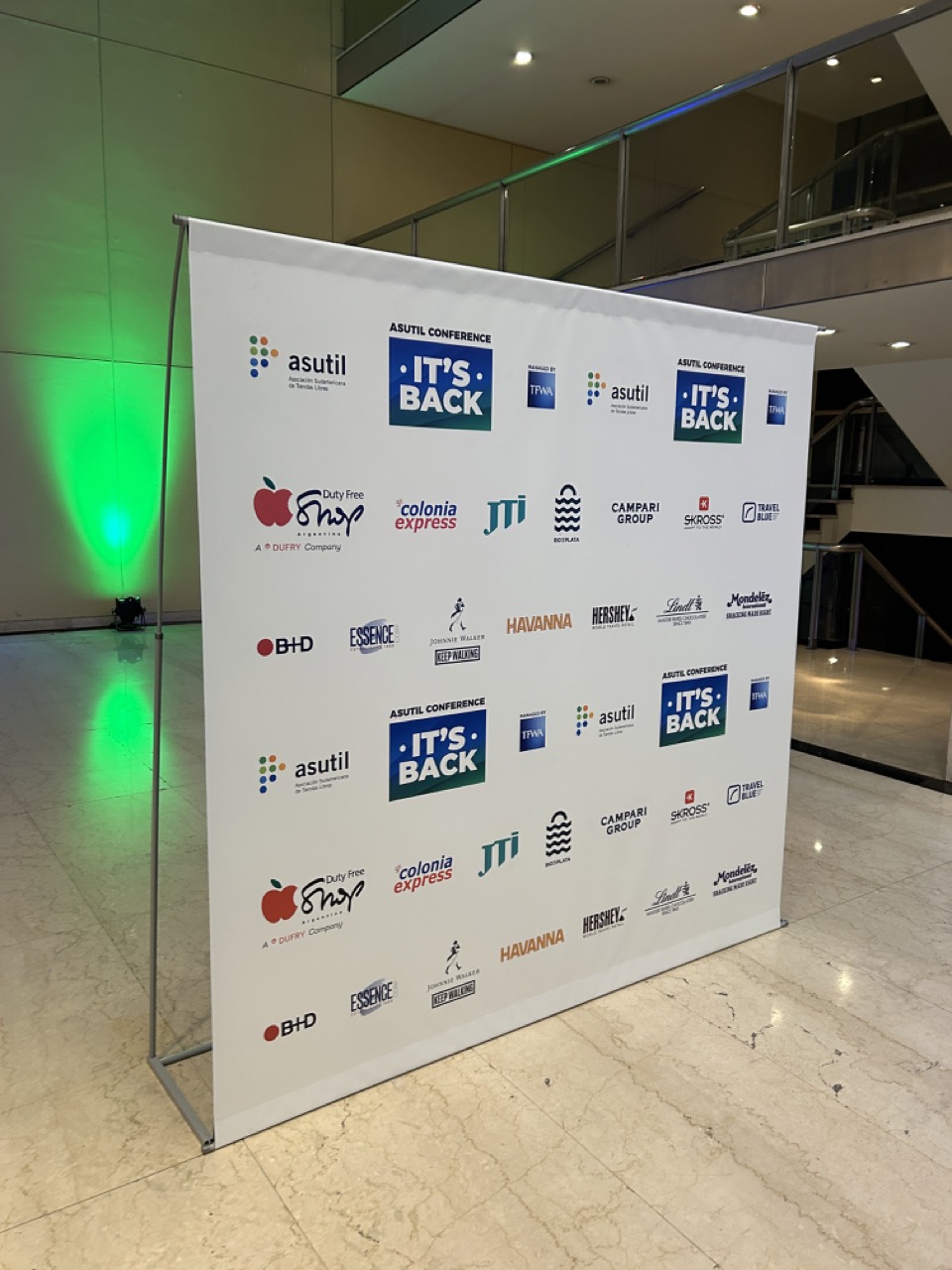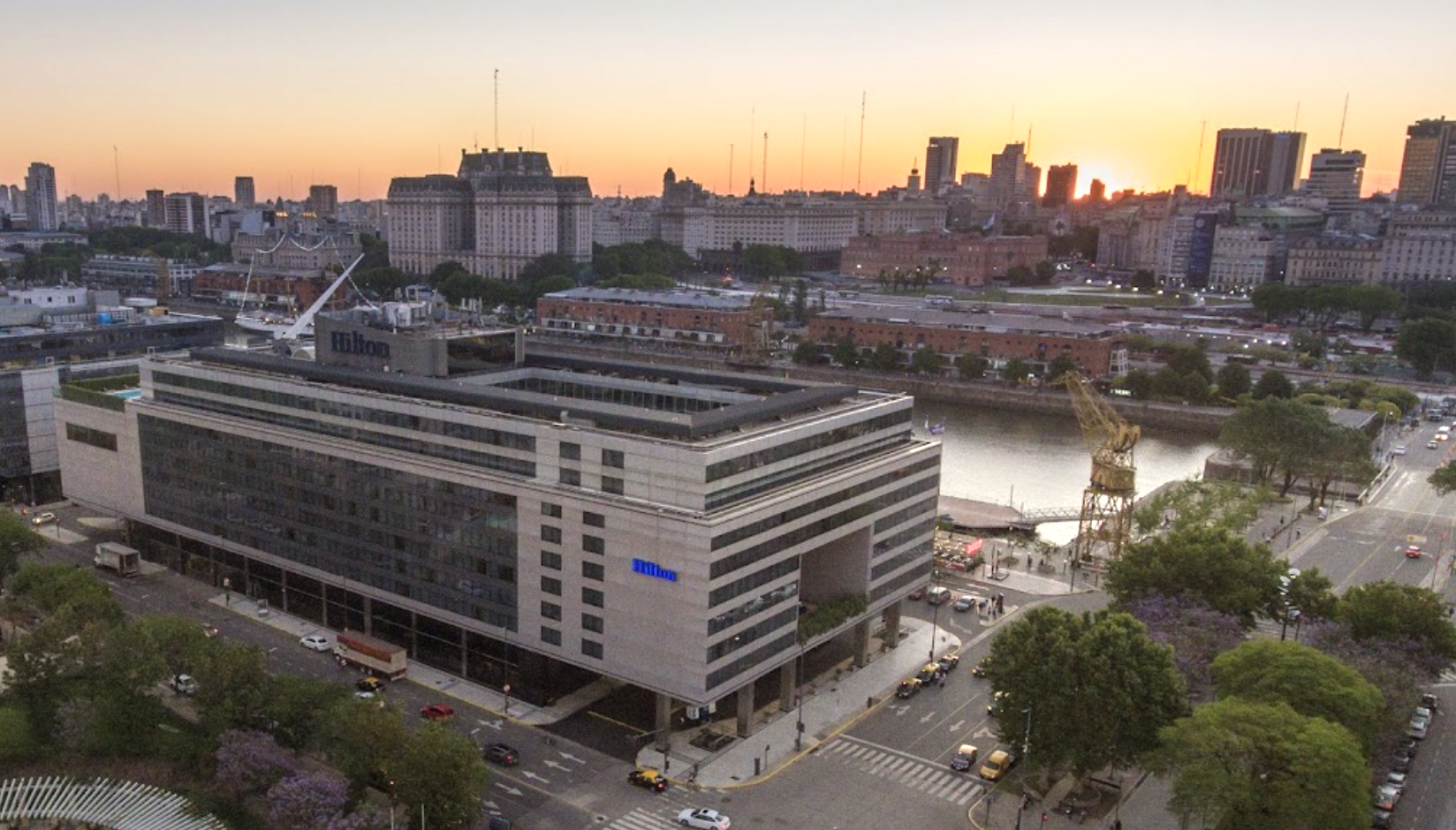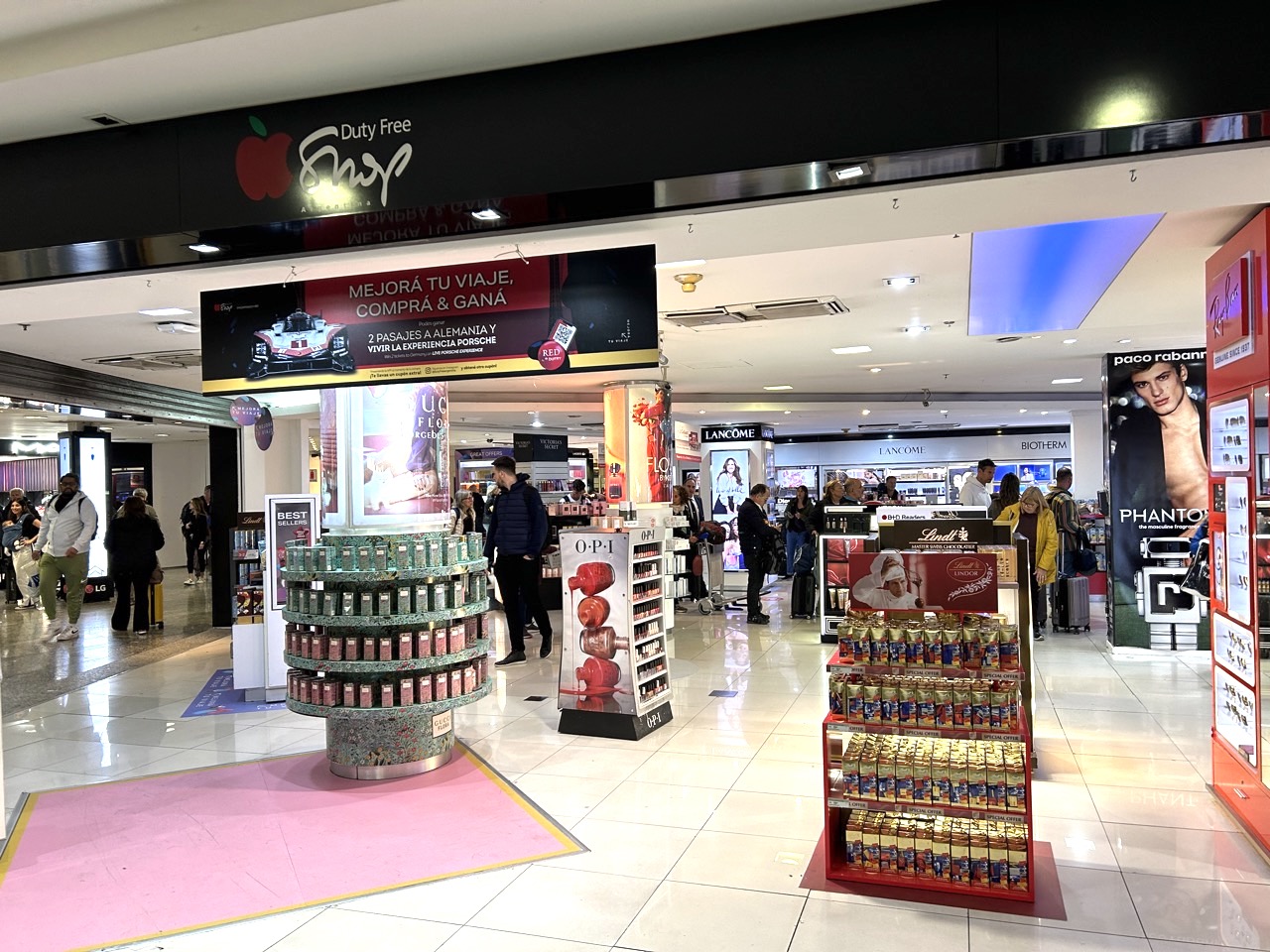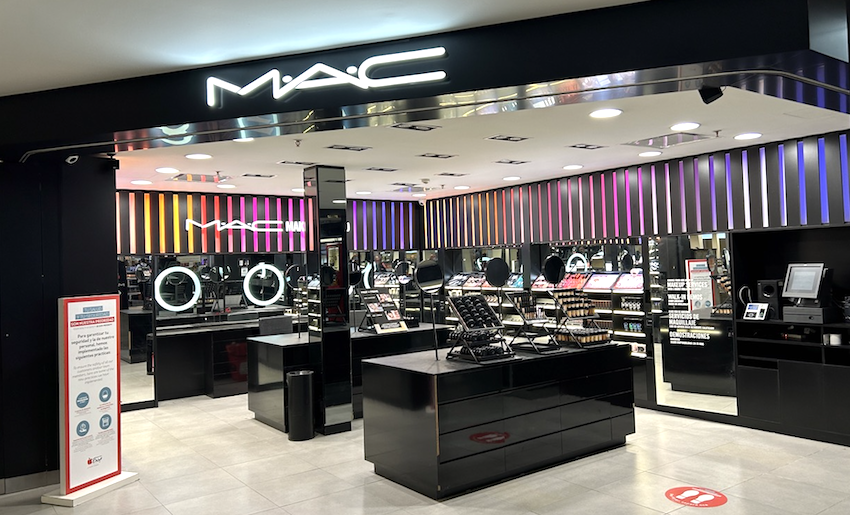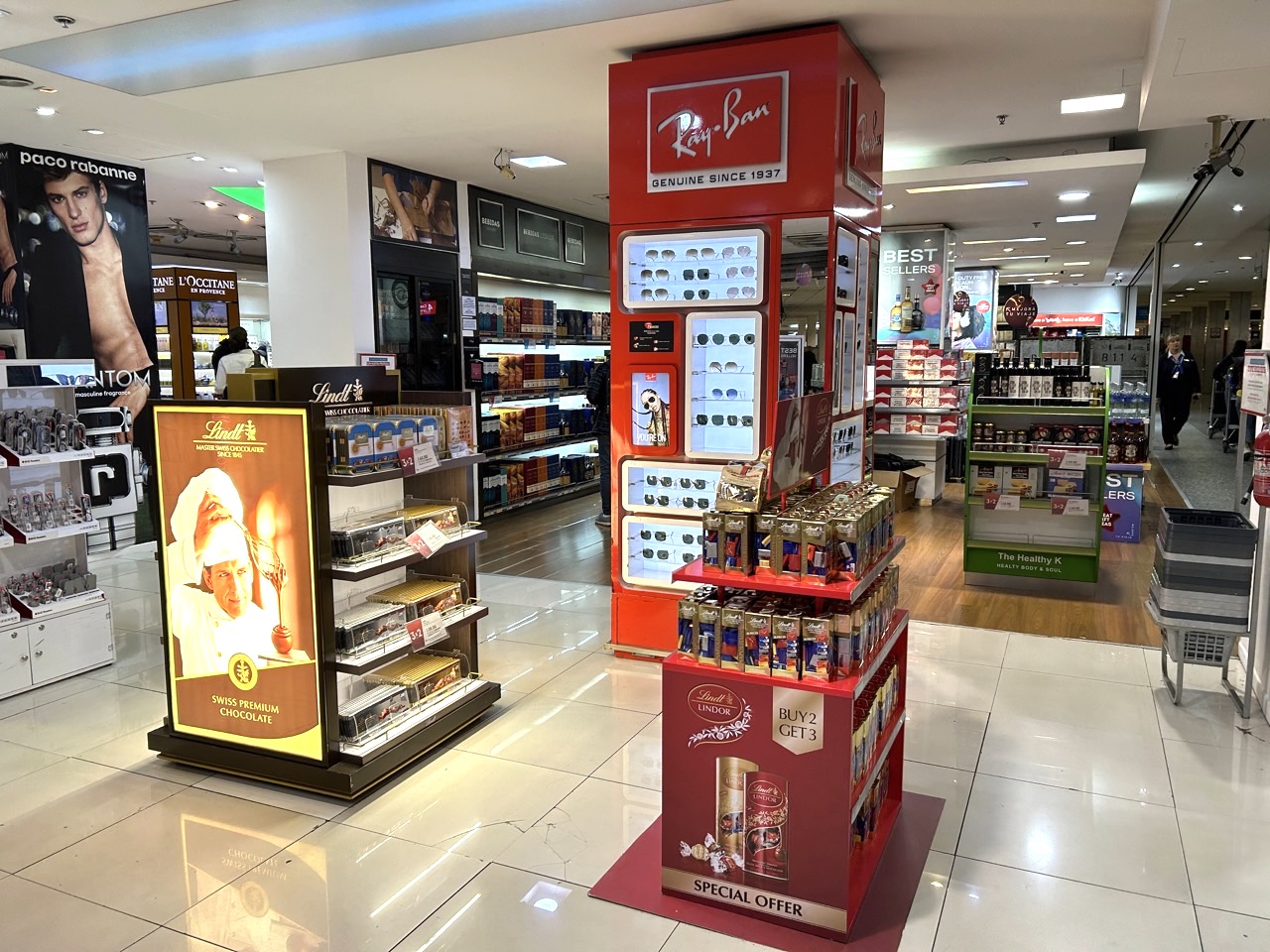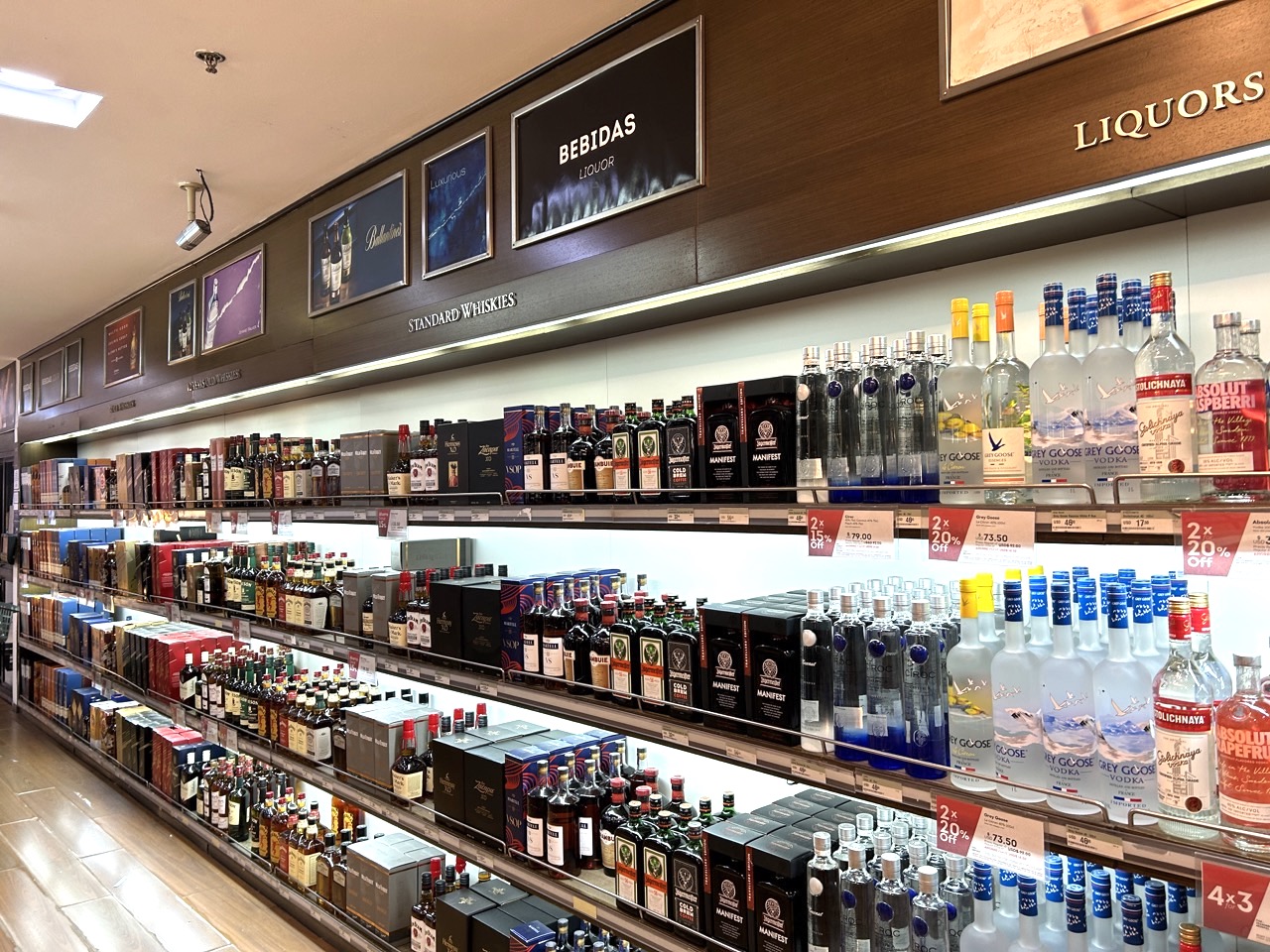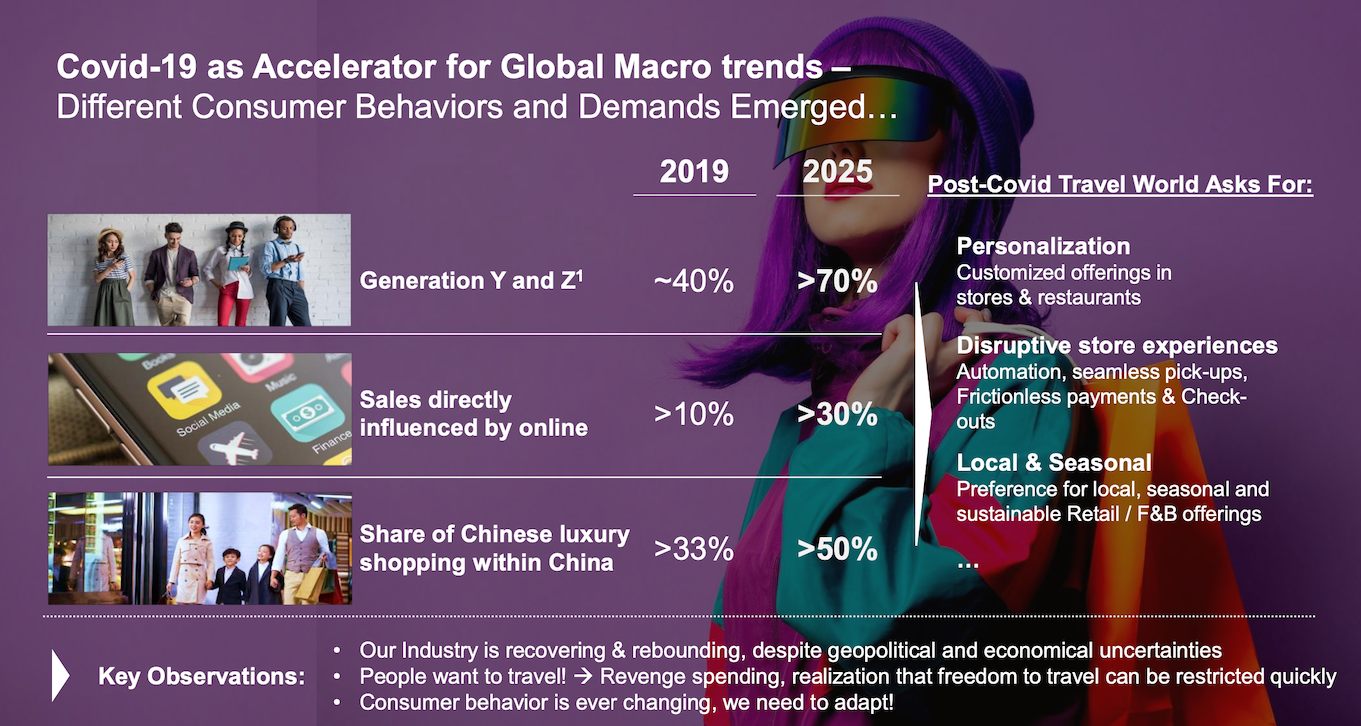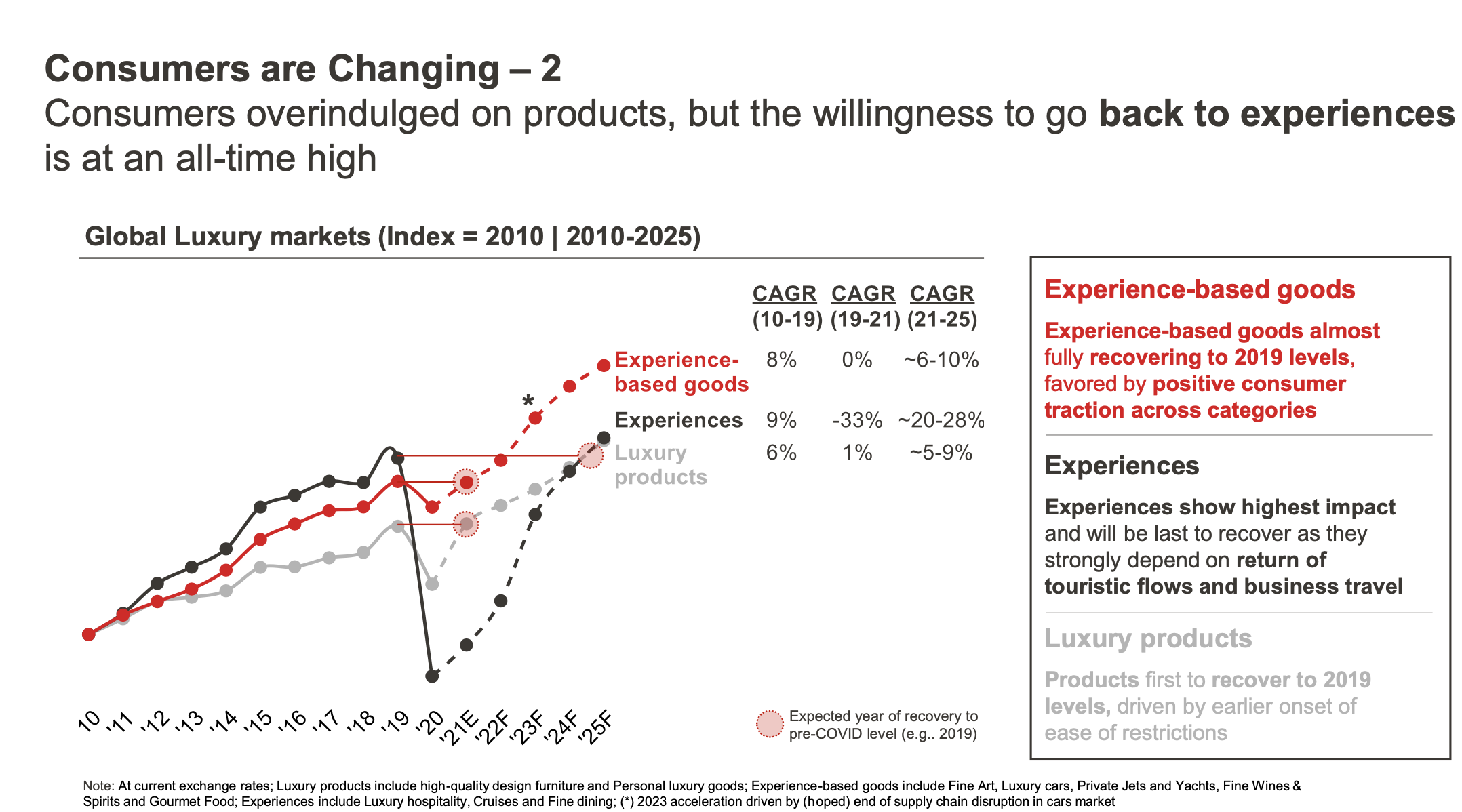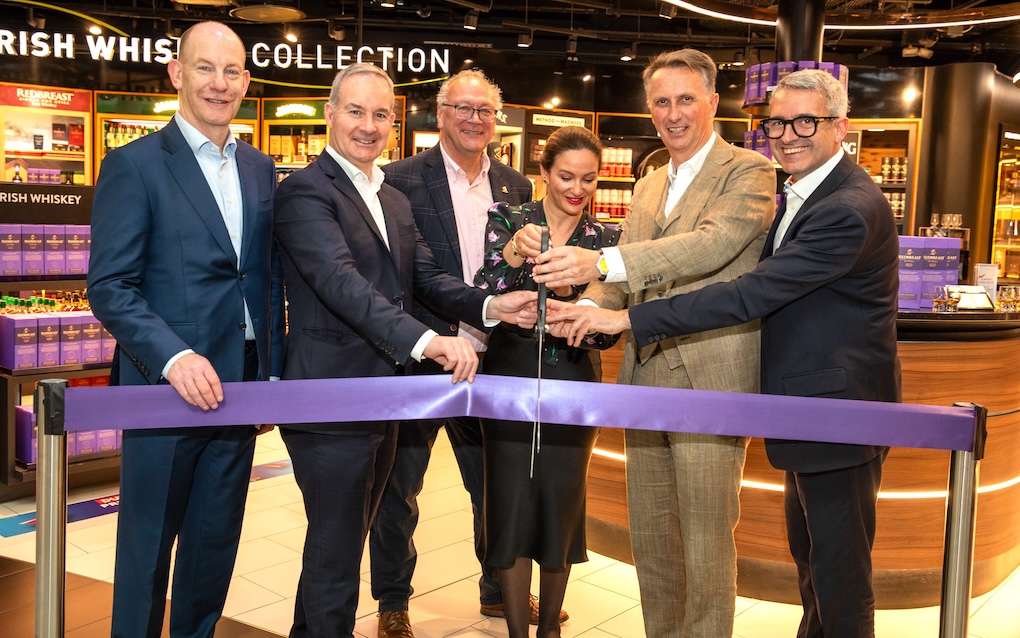LATIN AMERICA. Welcome to our rolling coverage of the 2023 ASUTIL Conference, which takes place this week at the Hotel Hilton in Puerto Madero, Buenos Aires. It marks a return for the popular regional event for the first time since 2017.
The conference is managed by TFWA on behalf of ASUTIL, the South American duty free association. See below for highlights of the event, including a lively social programme, in words and images.
9 JUNE
Ferry operator Colonia Express partnered with ASUTIL to host a social day on 9 June, with a trip to Colonia Port in Uruguay and to Los Cerros de San Juan vineyard, before a return to Buenos Aires. See below for selected snapshots.
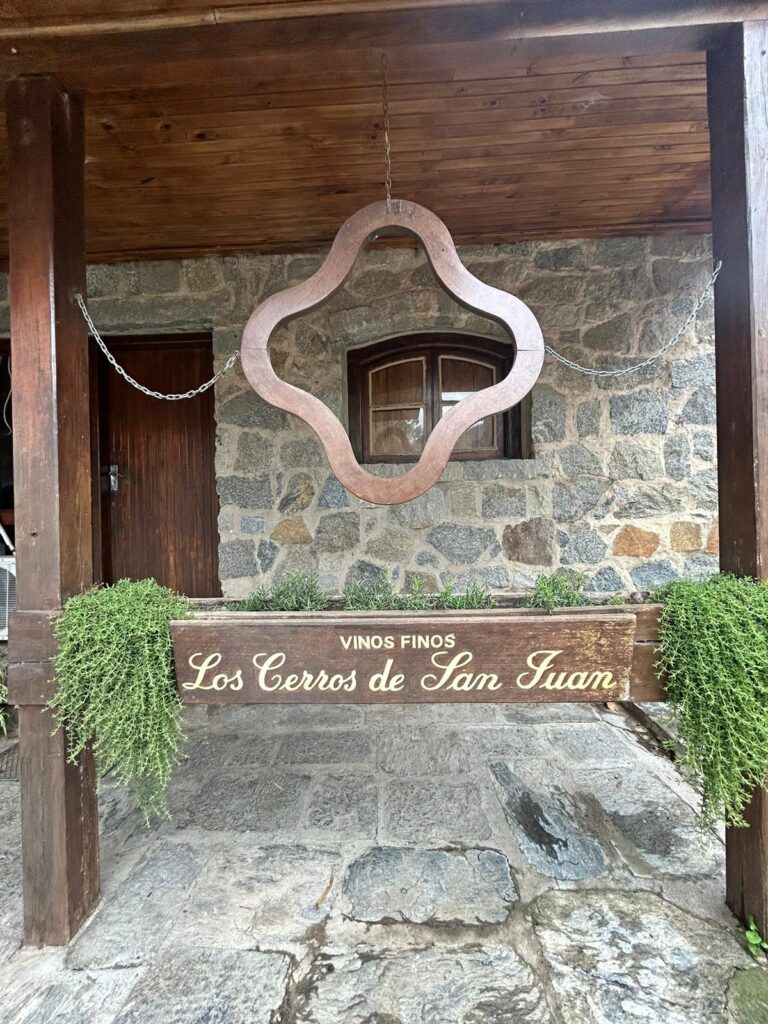


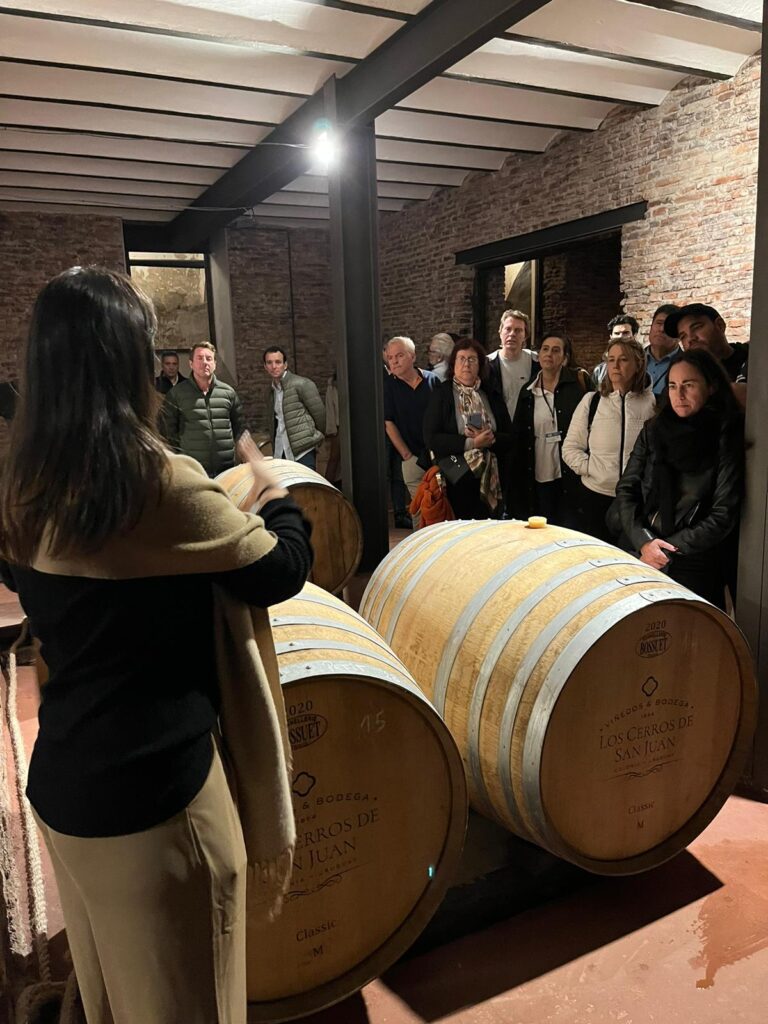
8 JUNE

Closing the 22nd ASUTIL Conference, José Luis Donagaray said the brand value of ASUTIL remains strong and that the two days had provided rich information and many fruitful meetings.
ASUTIL Vice President (and Dufry CEO Latin America) Enrique Urioste hailed the work of the ASUTIL and TFWA teams.

On the wider market, he said: “I am an optimist. I know we were hit hard by the pandemic but we stayed afloat, we survived. Every time we come out of crisis we are stronger. We see how fast traffic came back. Average spend has risen sharply. These are clear signals.
“We know there is uncertainty in parts of the world, but despite that, I am optimistic about growth.”
Urioste also cited the Trinity concept created by The Moodie Davitt Report Founder Martin Moodie about coming together for a collaborative industry effort, noting that this push to partner more closely remains strong today.
“The most important thing is that the collaborative spirit remains. To grow we need to collaborate as an industry, and if we do that, we will always succeed.”
Using technology more effectively, and making duty free relevant to digital natives, was the central focus of the final session of the conference. It featured Pernod Ricard General Manager Travel Retail Americas Gregory Ford and Meta Latam Account Manager for Argentina, Chile, Colombia and Peru Stefano de Carolis.
They spoke about the steps that travel retailers and their partners can take to more effectively engage travelling consumers using digital, mobile and online tools.
“Things are changing very fast. Over 80% of our duty free alcohol shoppers are exposed to multiple online touchpoints, and those that are tend to spend up to +72% more [than the average] according to our research,” said Ford.
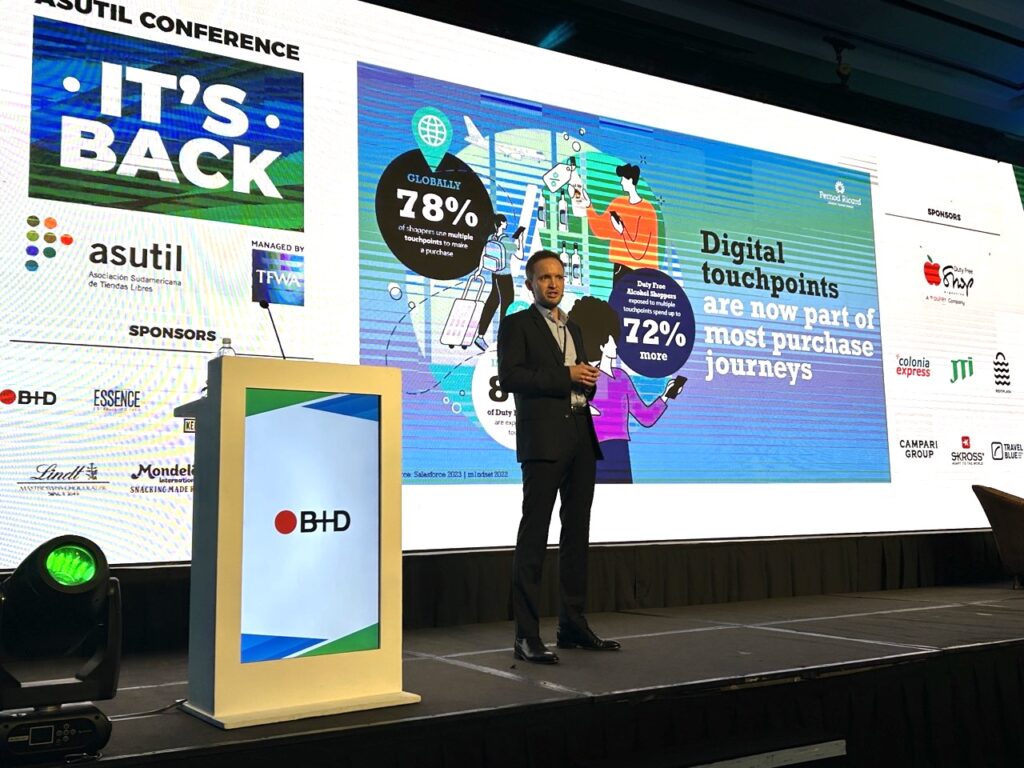
“We need to become much more native to reach this new generation of shopper. That means reaching the traveller across as many touchpoints as we can, and in a really engaging, consistent way.
“We aim to create outstanding shopper interactions online and offline,” he noted, citing examples of the Royal Salute Kingdom Club 3D Virtual Store and the Martell Robot Bartender & AI Ambassador deployed for the first time at Singapore Changi Airport.
He addressed how Pernod Ricard had also been piloting omnichannel campaigns, including recently, the Jameson ‘Arrive Like A Local’ campaign that ran across multiple markets.
Ford also homed in on the importance of partnership in seamless, consistent brand-retailer engagement, creating shopping experiences that have the same price, offer, look and feel online and offline.
“We also need to leverage shared consumer data to grow value and engagement. Meta’s collaborative ads allow us to engage via brand-specific messages.”
Brands need to embrace new trends such as livestreaming, which is estimated to drive a US$70 billion ecommerce market by 2026, Ford added.
Summarising, Ford said that we in the industry need to “shift our mindset” to address the full path to purchase; to be bigger and bolder in testing and learning together, and to listen to the traveller and what he or she wants.
Stefano de Carolis spoke about products that Meta is developing that could be of use in travel retail.
He explained that short-from video is the next big shift in how people make, watch and share content – “fast, dynamic, concise stories that reward our attention”.

He noted that 54% of Brazilian online shoppers and 42% of those in Mexico discovered new brands or products from content creators.
Meta platforms, de Carolis added, also offer augmented reality to help customers discover, explore and purchase, and these will become an even greater feature of commerce in the future.
He underlined the reach of the Meta platforms to travellers. The company is building three hubs to serve travel retail partners in Miami, London and Singapore.
“We know a lot about people from the point they search for the ticket to when they leave their home and later return. We have capacity to influence their awareness and encourage consumption. We can sub-categorise the audience of frequent international travellers into their demographics, their behaviour and interest in particular categories. We overlay this with first-party data which you in the industry have.
“We can personalise ads sold only at airports, for example. We also create collaborative ads with brands and retailers, optimising them within a win-win eco-system.
“We can also offer experiences, for example to consumers who are loyal to a specific brand. They can try on sunglasses using augmented reality or engage using interaction or through a 3D virtual store. These can act as prompts about where to go to find these products.”
Duty Free World Council President Sarah Branquinho updated delegates on the campaign to champion the industry’s transparent and secure supply chain credentials, and on its efforts to work with customs authorities and enforcement agencies to fight illicit trade in all its forms.
She discussed in particular the potential impact of the Third Meeting of the Parties to the Illicit Trade Protocol (MOP3), due to take place in November 2023 in Panama.
“Recovery in our industry is well under way and tobacco makes a strong contribution. We must talk about tobacco as it’s about 9% of our business and a driver of other categories’ spend. [A threat to tobacco] is something to concern us all.”
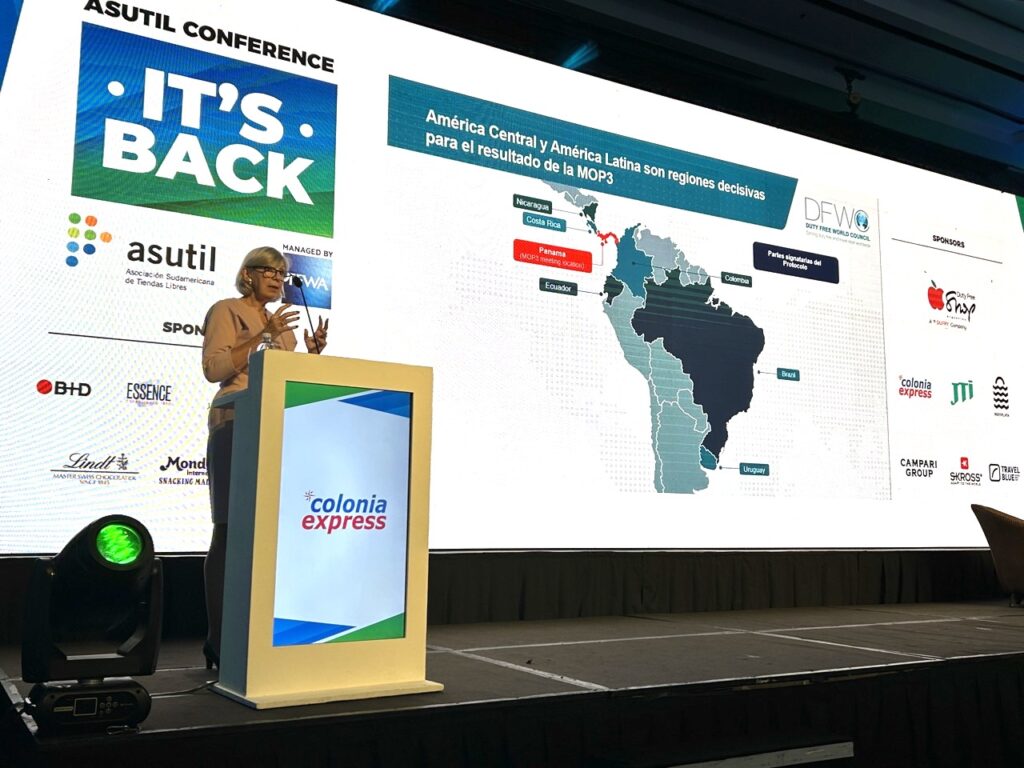
On MOP3, Branquinho highlighted the strong defence of the industry mounted at MOP 1 and MOP2, but highlighted the challenge of MOP3.
“We support the aims of the Protocol but we face unfair allegations about the connections between tobacco and illicit trade. We have concerns about Article 13.2 and its impact on our legitimate, law-abiding industry.”
WHO has called for a study into ‘what extent’ tobacco duty free contributes to illicit trade, which the Duty Free World Council believes it will be used to potentially cause an irreversible challenge to the industry.
A key element of the campaign is to underline how unlikely illicit trade is to penetrate duty free, given the stringent rules around the sale of products and clear responsibilities of the industry partners and agreements with Customs authorities.
Branquinho called on industry stakeholders to support the defence against the WHO’s claims of illicit trade.
DFWC and TFWA are also planning to launch a declaration reaffirming the commitment to fight illicit trade, which can also be part of companies’ own ESG policies.
Industry stakeholders can speak to their Customs authorities and ideally receive affirmations that duty free has not been a contributor to illicit trade, or receive further information from the DFWC.
Earlier in the afternoon, leading regional economist Carlos Melconian (below) took delegates on a whirlwind tour of the global economy and key regional markets, notably Argentina and Brazil.
He highlighted the impact of surging inflation across most of the world, and the uncertain impact of a ‘Super Dollar’ on other currencies and economies.
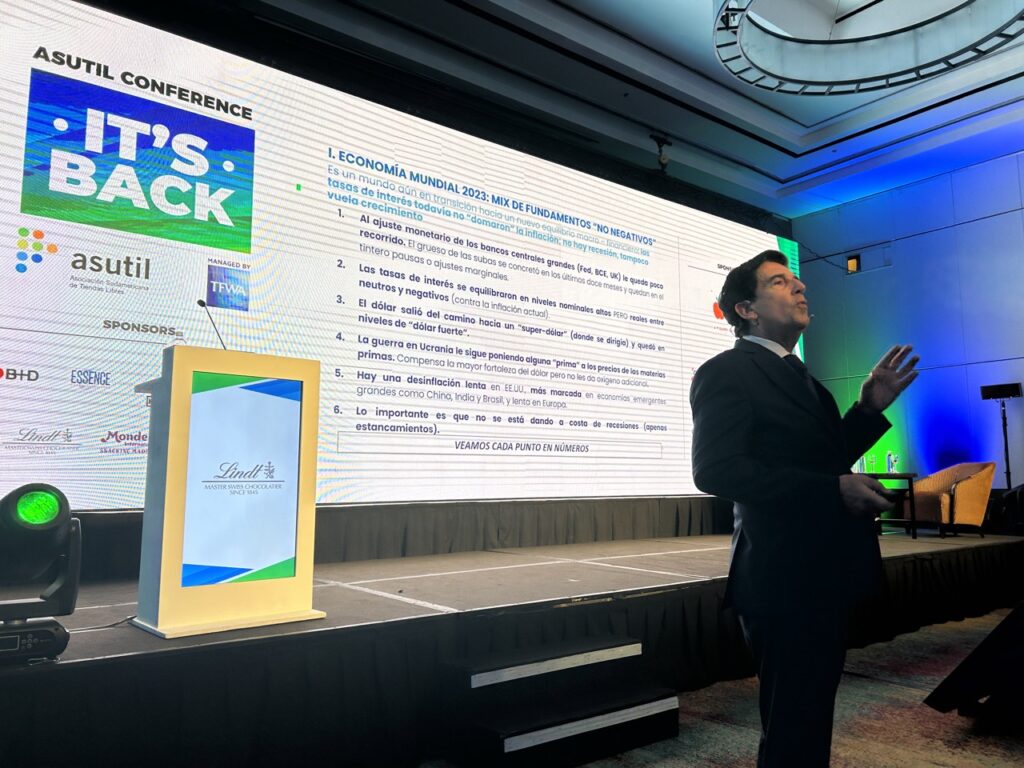
On Brazil, he noted that the economy was healthy in relative terms and a good place to do business. Politically, he said there remains confusion about President Lula’s foreign policy – as he aims to establish closer ties to China and Russia while also attempting to simultaneously become more aligned with the US.
On Argentina, he noted that the economy looks on the outside like a “Frankenstein’s monster”, with monthly inflation running at the same rates as annual inflation elsewhere – with big political consequences for the government at the next election.
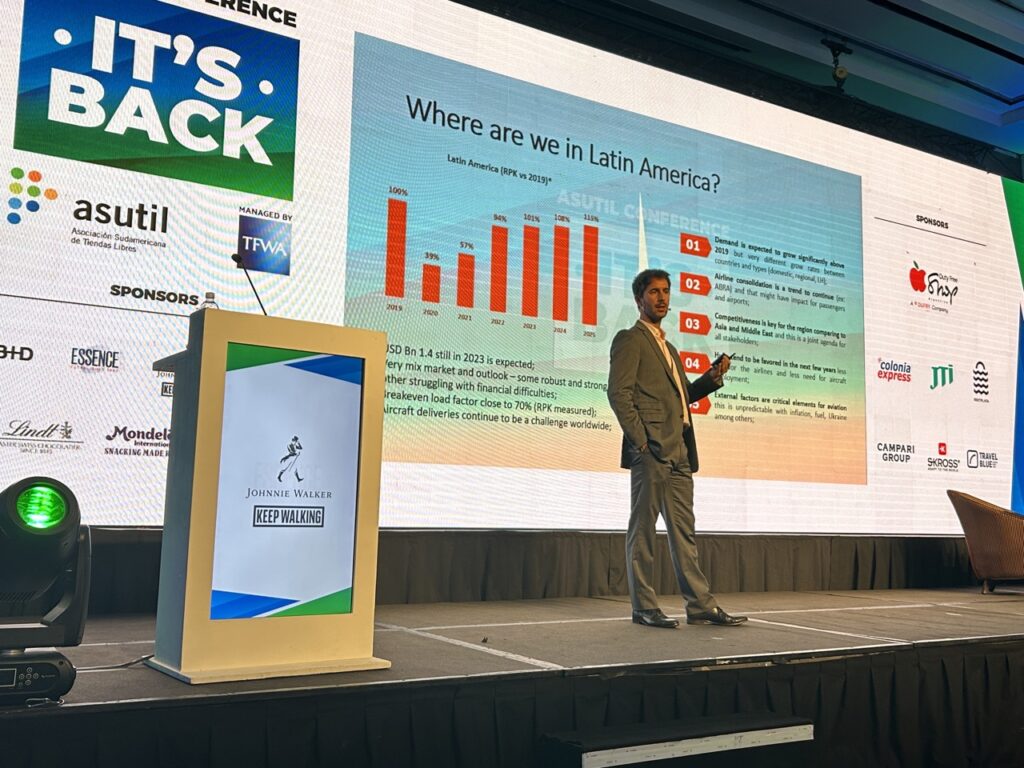
São Paolo Guarulhos Airport Chief Commercial and Cargo Officer João Pita delivered a breezy address about the health of the regional air travel market, and the mixed health of the airline industry a key topic.
Among the trends he identified was that air travel demand is growing significantly above 2019 levels; airline consolidation is continuing; competitiveness among airlines is a key issue for the region; major hubs are likely to be favoured by airlines in the coming years; plus he highlighted unpredictable external factors from fuel to inflation to the impact of the Ukraine-Russia conflict.
Pita highlighted the importance of tourism to Brazil – at 8.1% of GDP – but noted that in relative terms to other global markets, tourism to Brazil remains tiny. Connectivity, especially for long-haul, is a challenge as direct services can stimulate demand. And airline competition plays a similar role, especially in driving leisure demand.

Pita asked what this might all mean for airport retail, and raised themes such as the role of luxury, the influence of ecommerce, the use of technology and new-generation consumer trends.
He said that the airport can represent a wonderful showcase for brands and highlighted the opportunity to target younger, non-business travellers via mobile targeting, backed by raw data, while identifying opportunities in new segments and across different products.
“We need to take a passenger-centric approach and use Big Data in our favour. We are all in the same eco-system and we have the precious advantage of people’s time.”
In a video message, Latin American airlines association ALTA CEO Jose Ricardo Botelho spoke about the outlook for regional airline traffic.

Latin America-Caribbean (LAC) traffic had almost returned to 2019 levels by April 2023. In Q1, Mexico, Colombia and Dominican Republic stood out for their performance in this period, and were well ahead of pre-pandemic levels.
LAC still has lots of room to grow relative to more mature aviation markets, but needs more smart regulation, lower-cost travel to stimulate demand and to face challenges such as inflation, high taxes and environmental policies, he noted.
Aeropuertos Argentina 2000 Chief Experience Officer Manuel Aubone discussed how the airport company is aiming to use data to better know passengers before they come to the airport, and to strike an improved passenger relationship. That means using digital tools to engage people individually pre-trip, understand behaviour and use intelligence to frame targeted offers. On data, he added, “we are sharing to win.”

Another theme high on the agenda for AA2000 is to sell products and services via an airport marketplace platform.
“All of these initiatives are possible through data and data scientists, for which we created a team 18 months ago. And all of this data can be used to help our partners deliver on their commercial ambitions.”
“We aim to create memorable travel experiences alongside our retail and F&B partners. Let’s make product and service innovation together.”
He also raised a long-term view of the market, in which advanced air mobility is set to become a reality in coming years. AA2000 parent Corporacion America Airports is also developing infrastructure to build on its own vision for Vertiports. “We need to look beyond tomorrow,” said Aubone.
7 JUNE

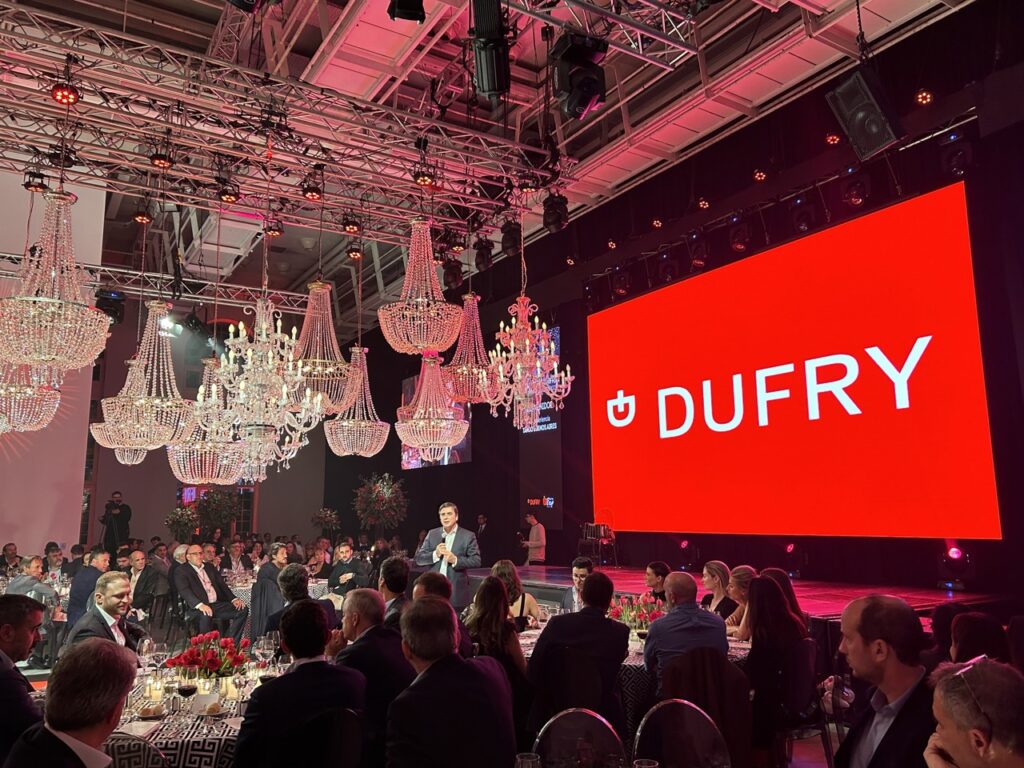
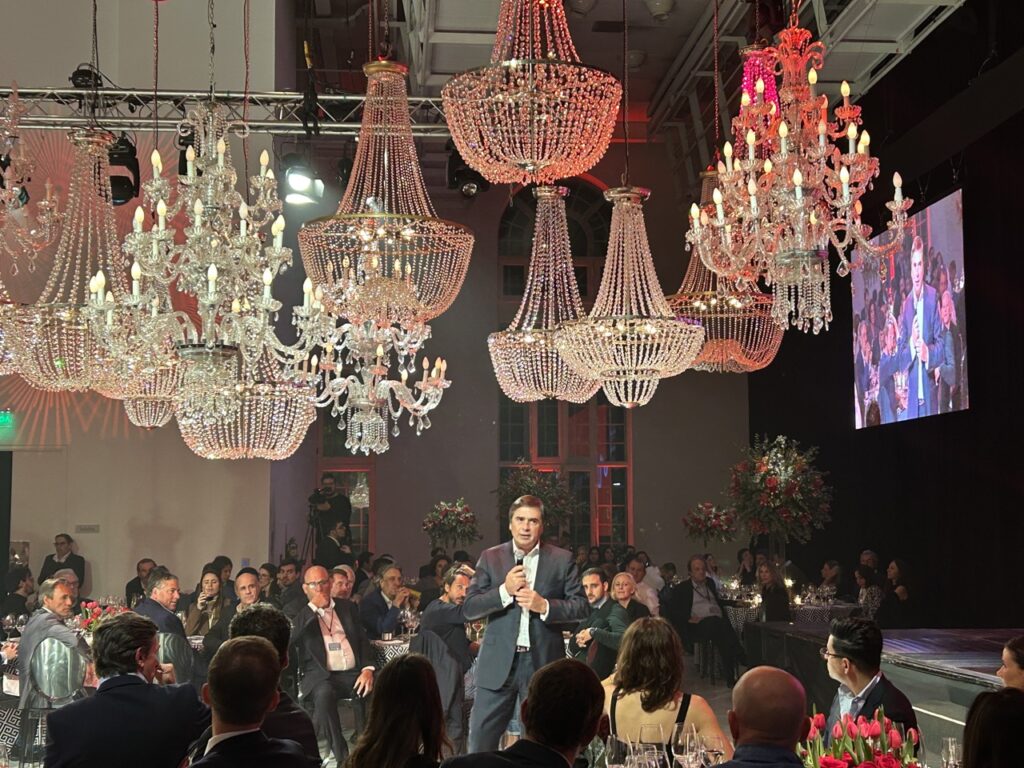
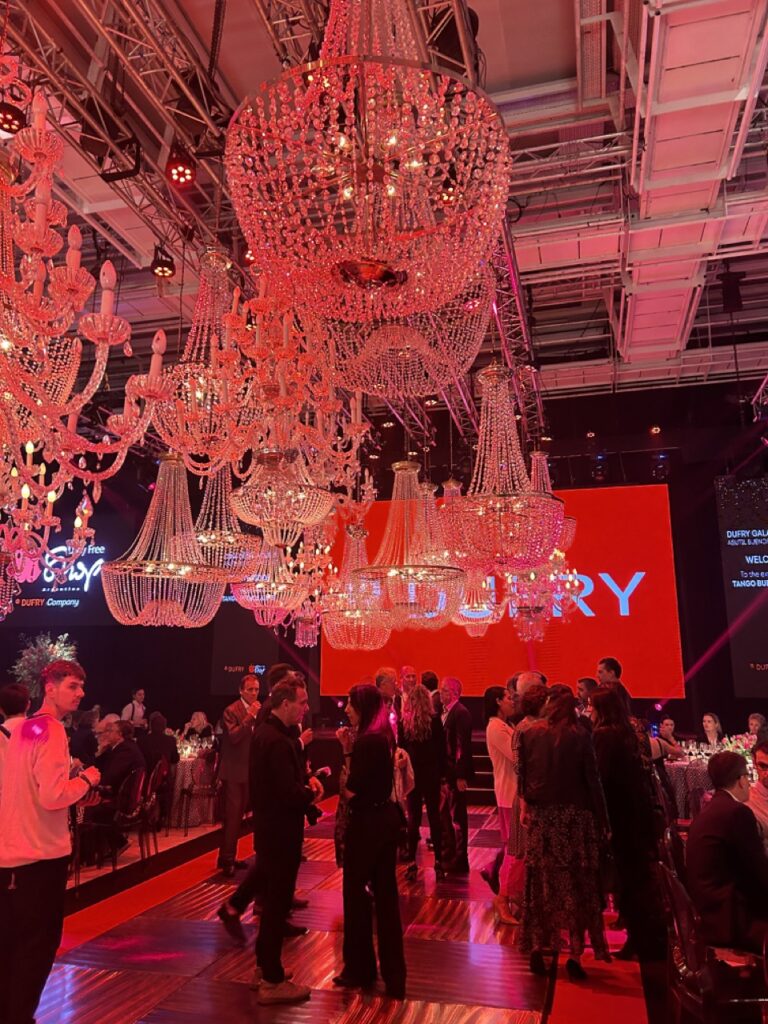
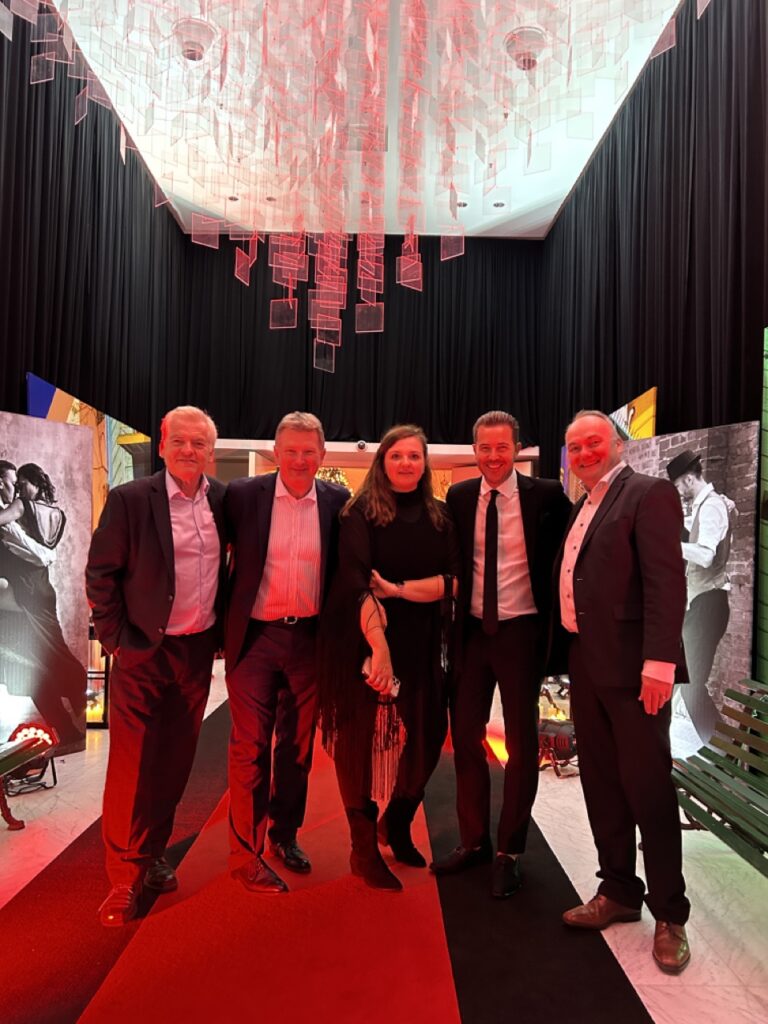
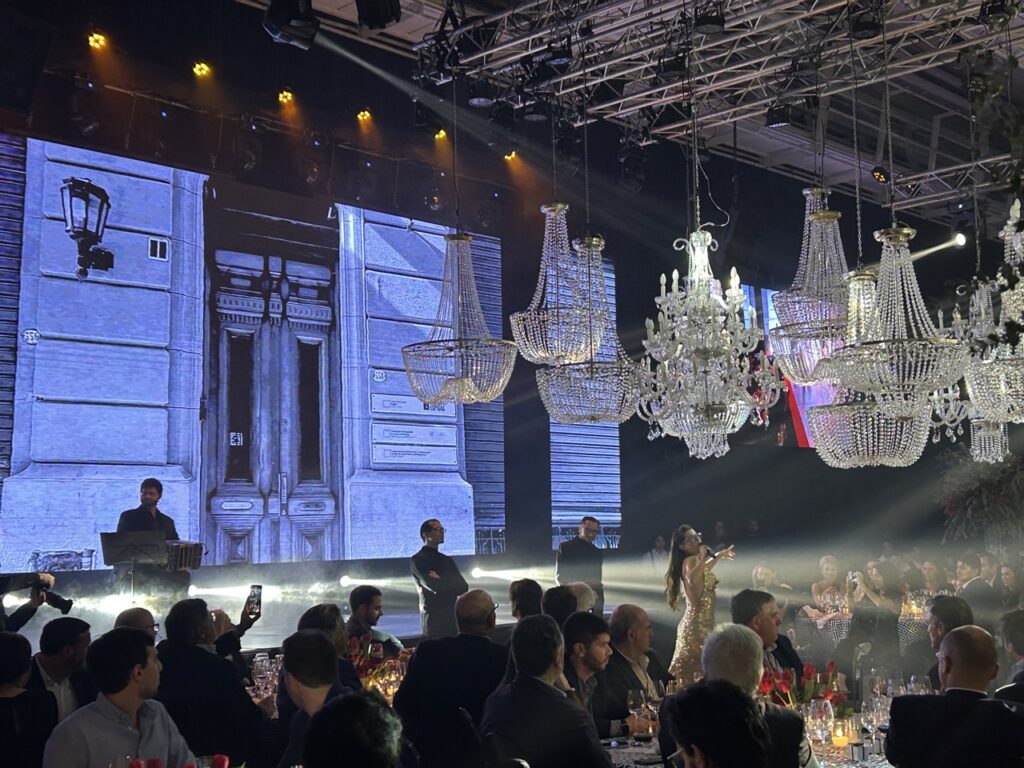






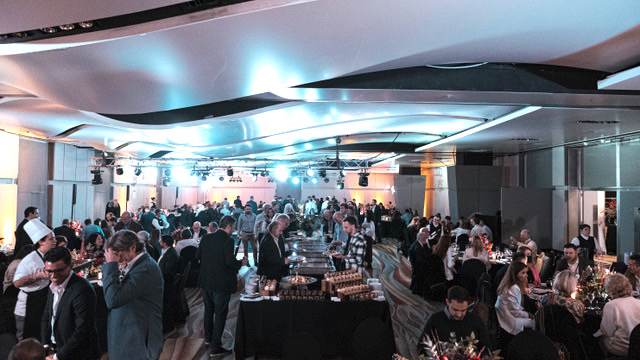



As day one concluded, ASUTIL Secretary General José Luis Donagaray and President Gustavo Fagundes presented B+D Chief Executive Roberto Crom with a special award to recognise his many years of service to the industry.
An emotional Crom thanked ASUTIL and his own team for helping him towards the achievement.
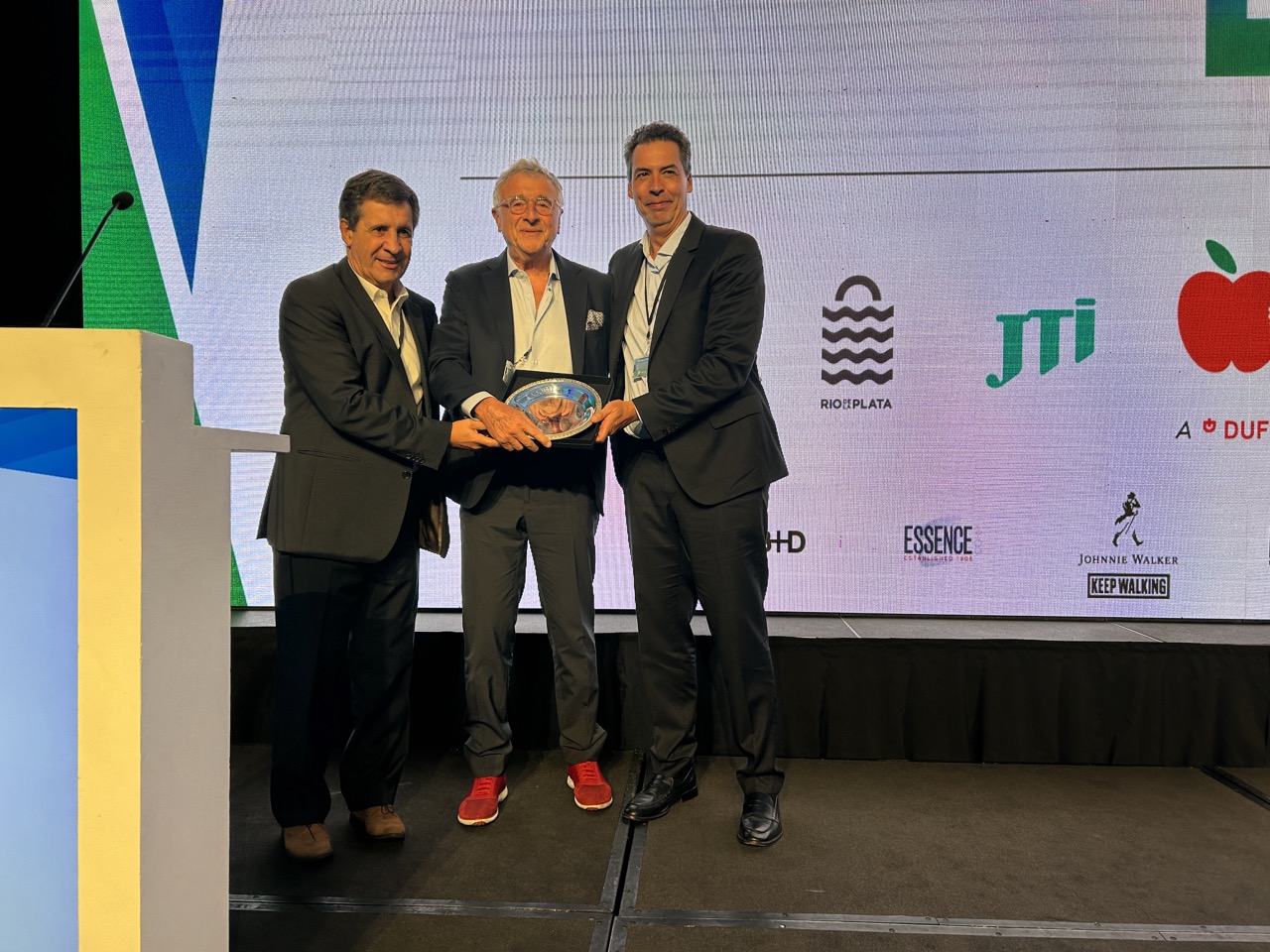
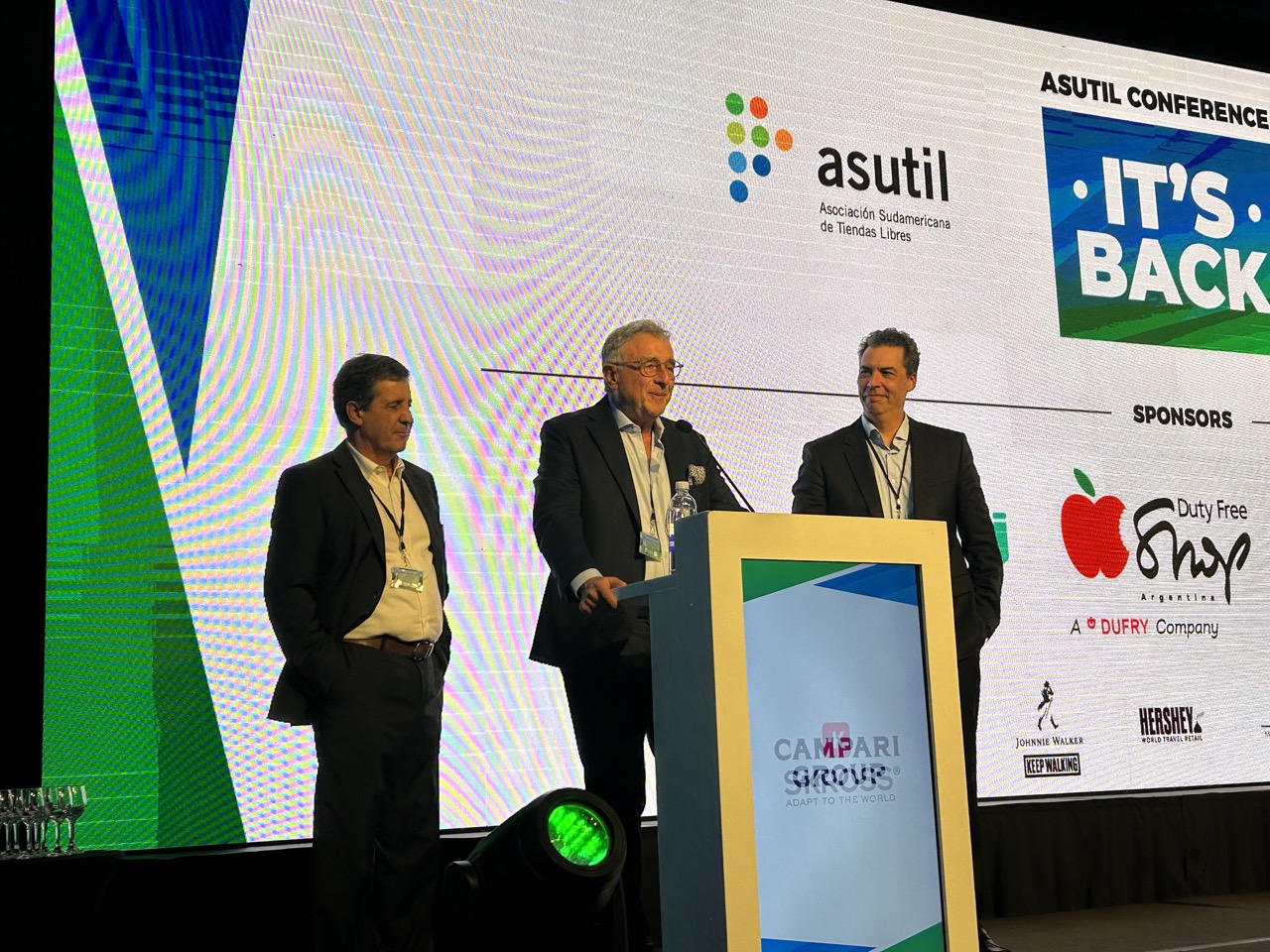
The border store business, and the rise of investment in this channel, was the focus of the closing session of the day. Moderated by Uruguayan border shop association CEFSU Secretary General Carlos Loaiza-Keel, speakers included Neutral by Luryx CEO Marcelo Montico, BAH Free Shop CEO Paulo Pavin, Uruguayan Ministry of Economy and Finance Director of Trade Policy Juan Alfonso Labraga Brea and Superintendente Receita Federal Rio Grande do Sul Altemir Linhares de Melo.
Loaiza-Keel outlined the shape of the Uruguayan border market, which grew to US$248 million in 2022, ahead of US$231 million in 2019 but is still well behind the historic high of US$363 million in 2011.

He outlined the key factors such as the reduction in fees for shop operators over time in Uruguay and of the recent fluctuation of the Brazilian Real. But he also underlined how important the duty free sector is to employment in border towns, notably to women who live locally.
Linhares de Melo outlined the history of the border store business in Brazil from the passing of a law permitting the channel in 2012 to the first openings in July 2019, based around the 34 cities in relevant frontier regions.
He noted a +40% increase in sales in the Brazilian border business in 2023 (January to May) year-on-year and said this channel would be worth US$70 million across the business in 2023 as a whole. To help operators, opening times will be extended, added Linhares de Melo. Building tourism and services was at the heart of government thinking about the border store opportunity, he said, rather than tax collection.
Juan Labraga underlined the Uruguayan government’s commitment to growing the border store business to attract investment and create jobs. “We are working on improving the system to help our partners. We increased allowances at the airport during the pandemic.
He pointed to strong recovery in most frontier cities. “For our sector the pandemic is over. We are bruised but have managed to overcome it.”

Labraga spoke about cooperation that would benefit both Brazilian and Uruguayan operators, rather than a “race to the bottom” through competition.
“We must work to harmonise the two systems. Each has its own peculiarities. Brazil had a negative list of what could not be sold, we had a positive list of what could be sold, but we moved closer last year. We are talking about this together. Our system was devised 35 years ago; now we have to adapt to the modern age.”
Marcelo Montico outlined recent sales figures for Neutral, which reached US$154 million in 2022 and will hit a projected US$207 million in 2023. This compares favourably to the 2019 number of US$100 million.
He highlighted the primacy of drinks (22% of sales in 2018 and 27% in 2023 YTD) and beauty (35% and 31% respectively). He cited the challenges of supply chain as a key factor in slowing the beauty business. “We see changes among consumers, with new preferences, as for example apparel & accessories have grown (16% in 2019, 22% today).” Click here for an interview with Marcelo Montico in the latest edition of The Moodie Davitt eZine.
Montico added: “We have many opportunities for growth. But there are challenges too. We cannot control the price or currency but we must protect the value proposition and ensure that goes beyond just making a saving.
“We must have supply that is relevant for our needs. Plus we need to modernise the regime to create balance between duty free and domestic stores.”
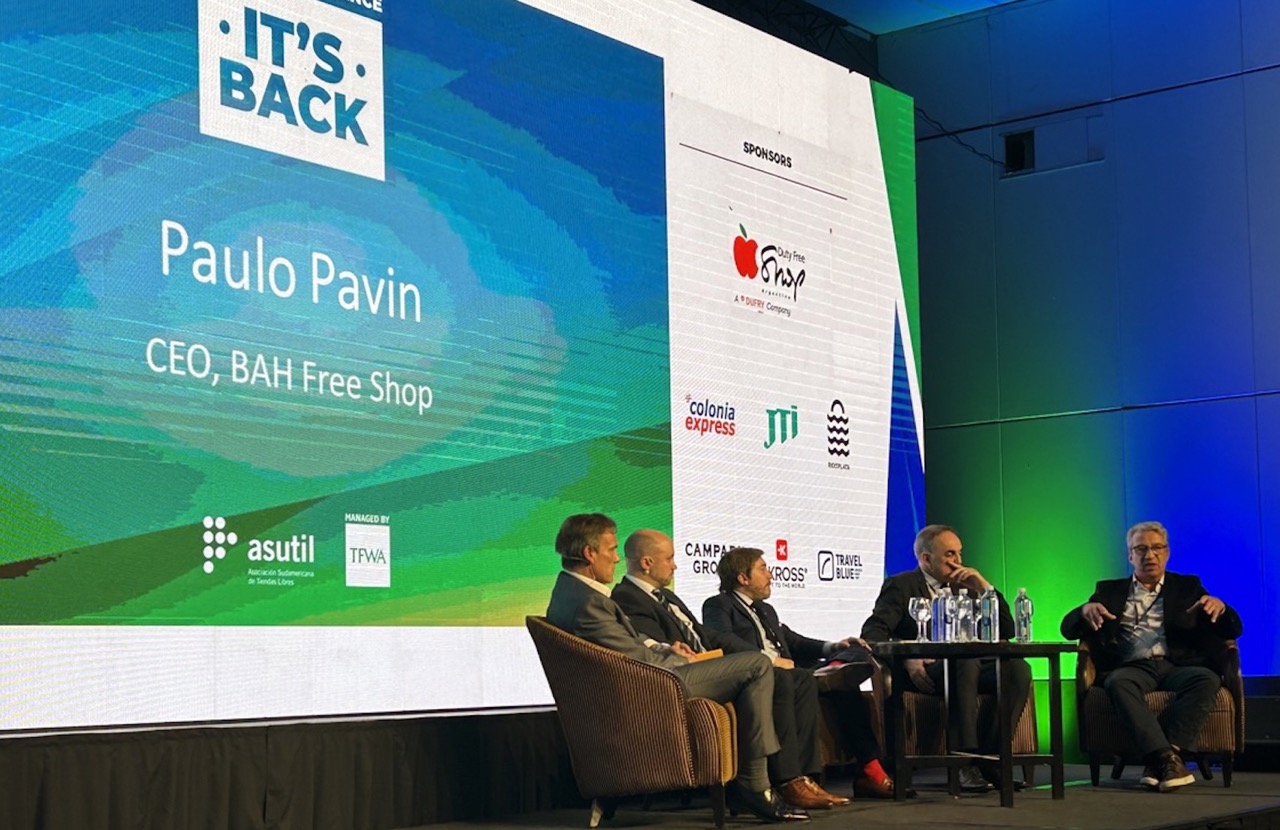
Pavin delivered a rousing, emotional explanation of the commercial and social impact of border shops inside Brazil. “We need to drive this business. All of the cities near the borders are small, and don’t have other income apart from agriculture, so this new shopping commerce is interesting. In Uruguaiana, we have close to 80% of sales from non-locals so this brings visitors that are changing the face of these cities.
“It’s not like international travel or duty free. Many of the people who come to shop, many of them farmers, have not flown and will never fly. They are getting an experience of a perfume or try a beverage they have only seen on TV. This is social inclusion and helps to empower people. People are proud that their city has a duty free store.
“We provide finance for 12 payment instalments as this also makes inclusion possible. It creates hundreds of jobs in Uruguaiana, which is the capital of the border shop business inside Brazil, with nine stores. This is a significant contribution to inland cities in Brazil. We hope with tax authority and revenue support we can strengthen the system. It is not about competing with our neighbour, it is about creating jobs and value.”
Delegates heard the findings of a new study conducted exclusively for ASUTIL by travel retail research specialist m1nd-set. Owner & CEO Dr. Peter Mohn revealed his company’s latest insights into Latin American shopper behaviour.
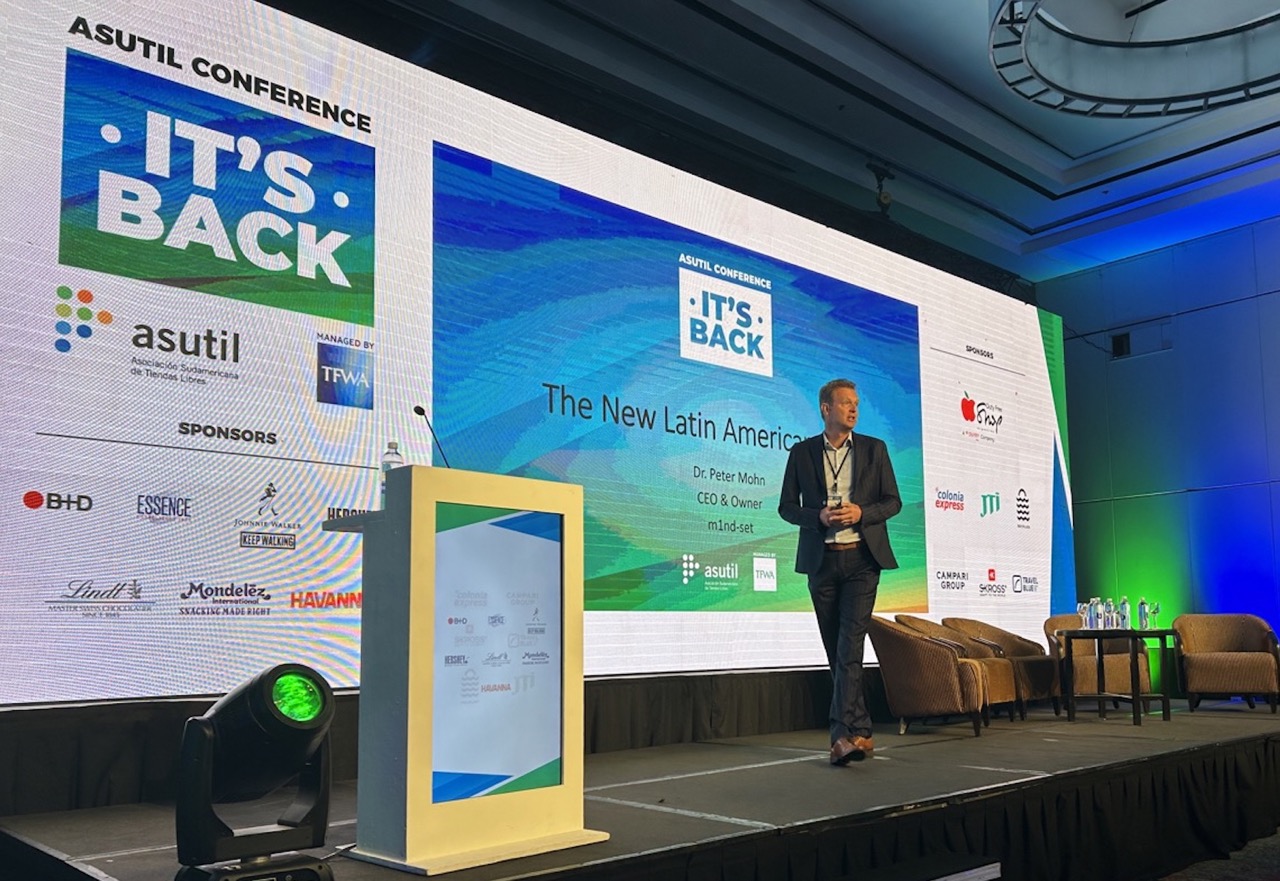
Like Rossinyol, he urged delegates to be “bold and exciting” to better engage younger consumers who are seeking new experiences.
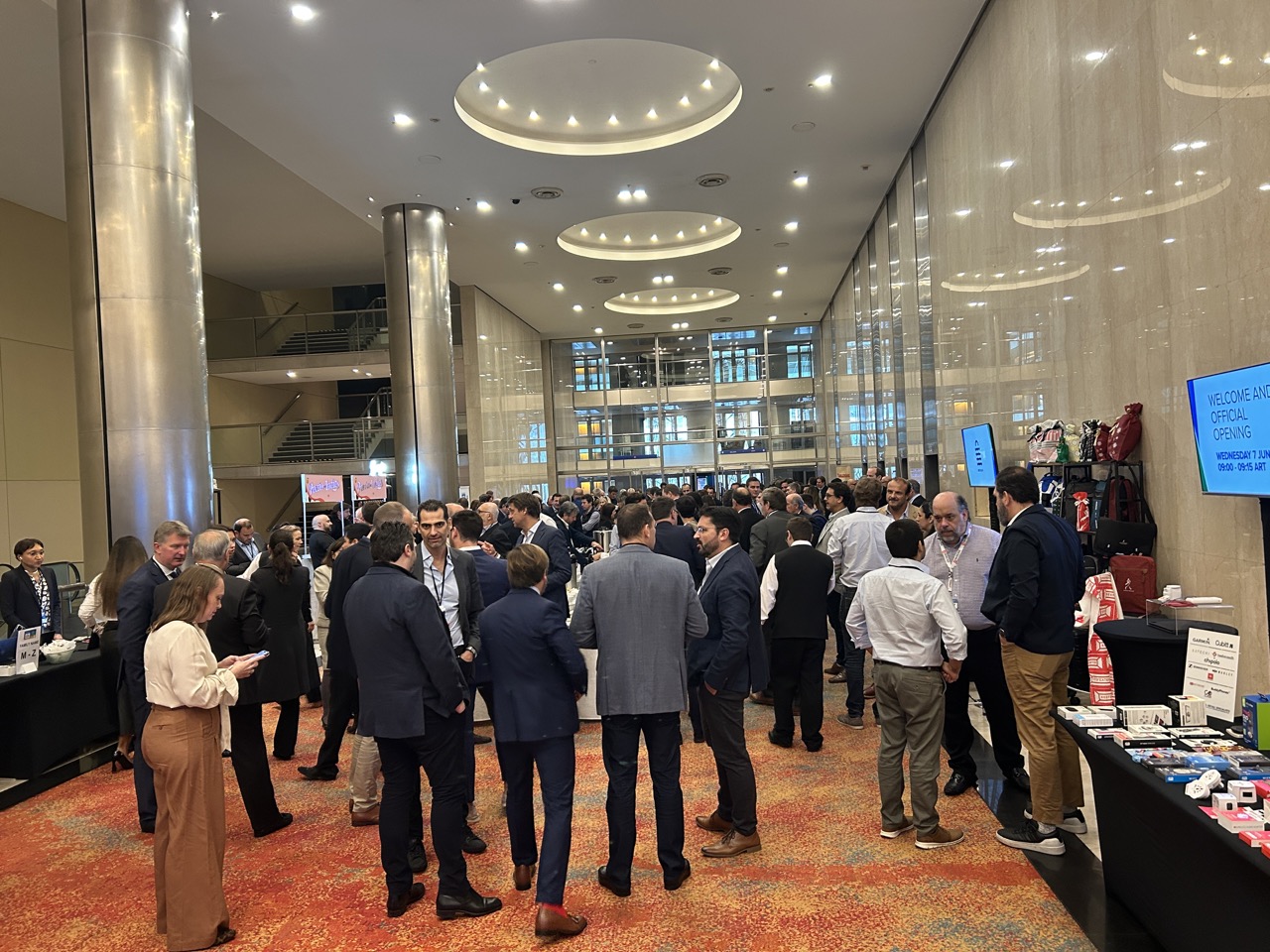

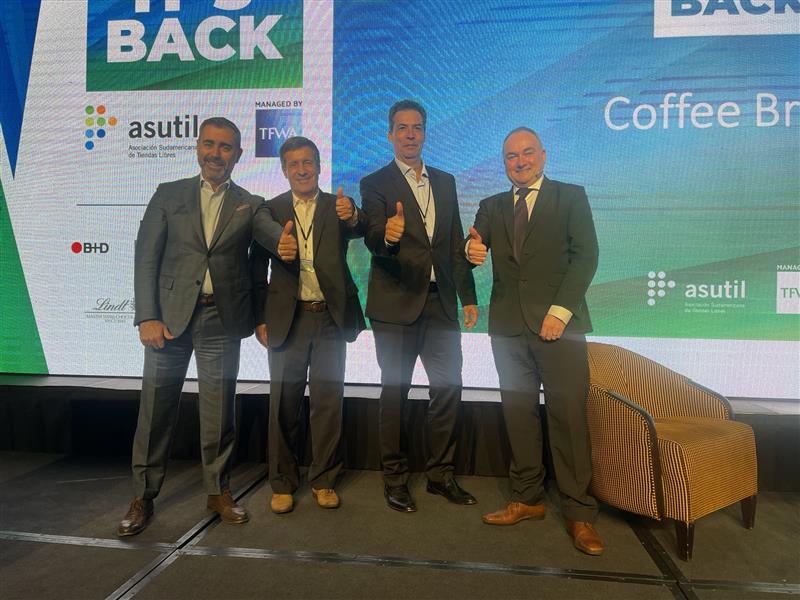
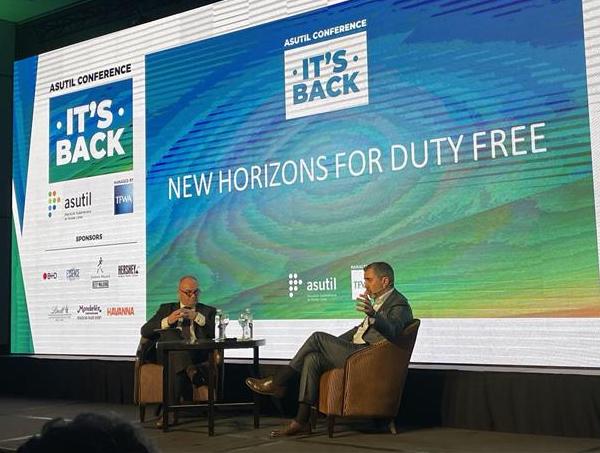

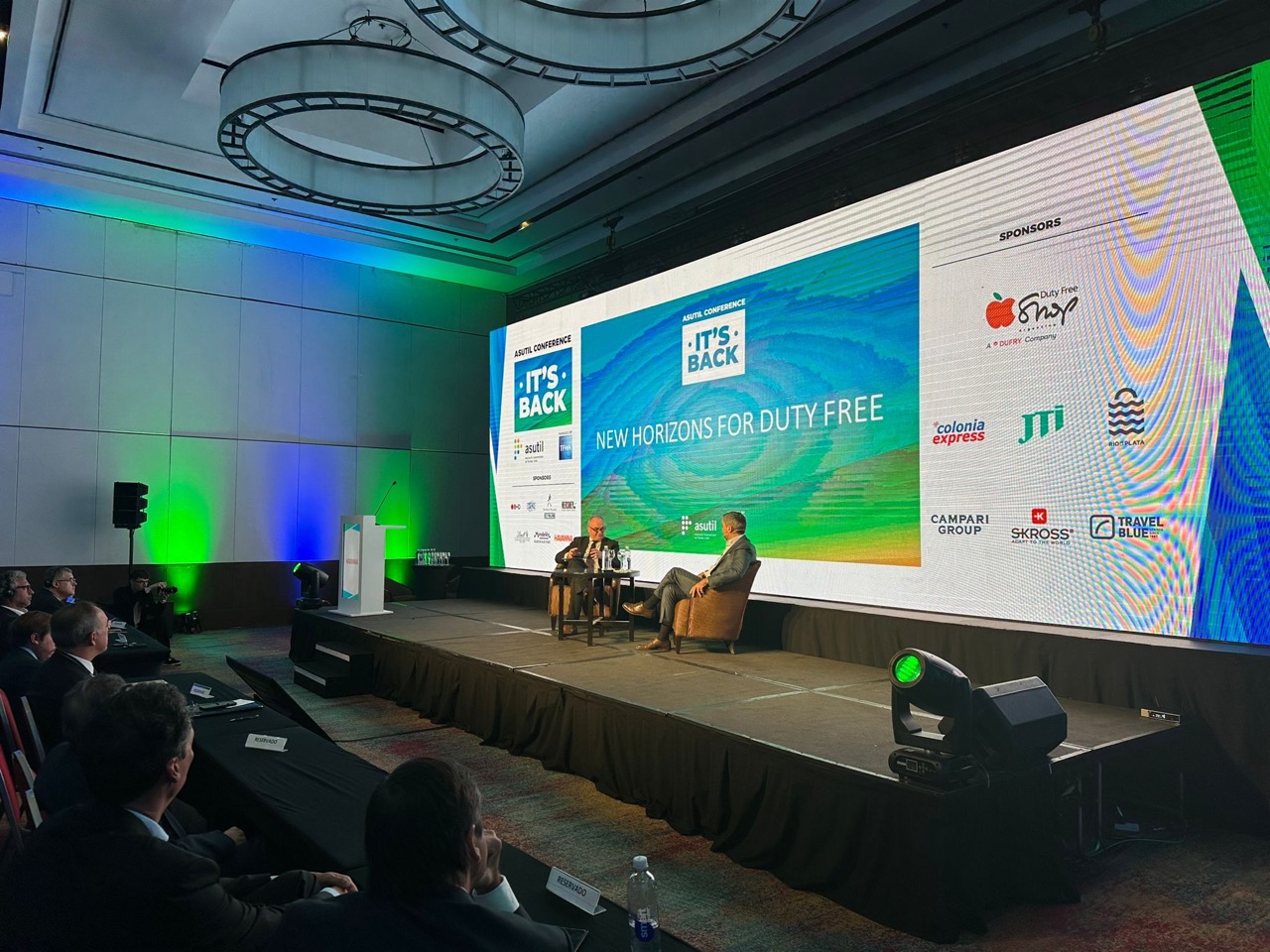
Dufry Group CEO Xavier Rossinyol delivered a wonderfully engaging presentation about the transformation of the travel retail, its business combination with Autogrill and the dynamics that will shape the industry’s future. This was followed by a quickfire Q&A session with The Moodie Davitt Report President Dermot Davitt.
Rossinyol began with a reminder that despite many crises, international travel continues to increase decade on decade.
“Only between 10% and 20% of people on earth have ever taken a flight. That shows the potential we have in our industry. Humans are natural explorers and travel is how we explore today. I believe we will have a great industry for the next 30 years.”
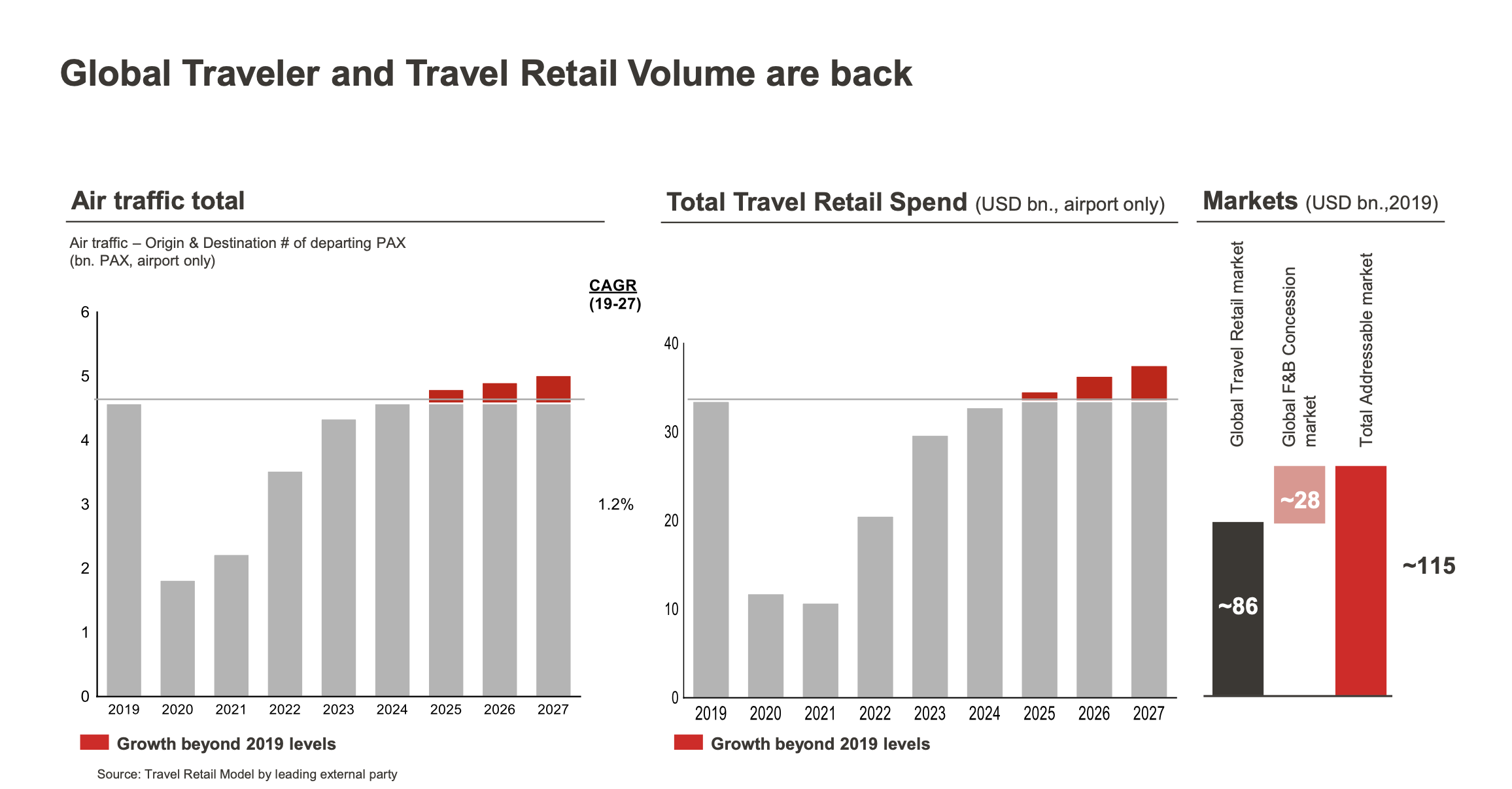
On the short-term travel trends, he noted that many markets are back to pre-pandemic levels already. “By 2025/26 we believe the level of growth we’ll see will be back to what we would have had even without the pandemic.”
In a figure previously outlined by Dufry under its business combination with Autogrill, the company says that the addressable market for travel retail and dining is valued at US$115 billion a year. “Our underlying growth is very strong,” said Rossinyol.
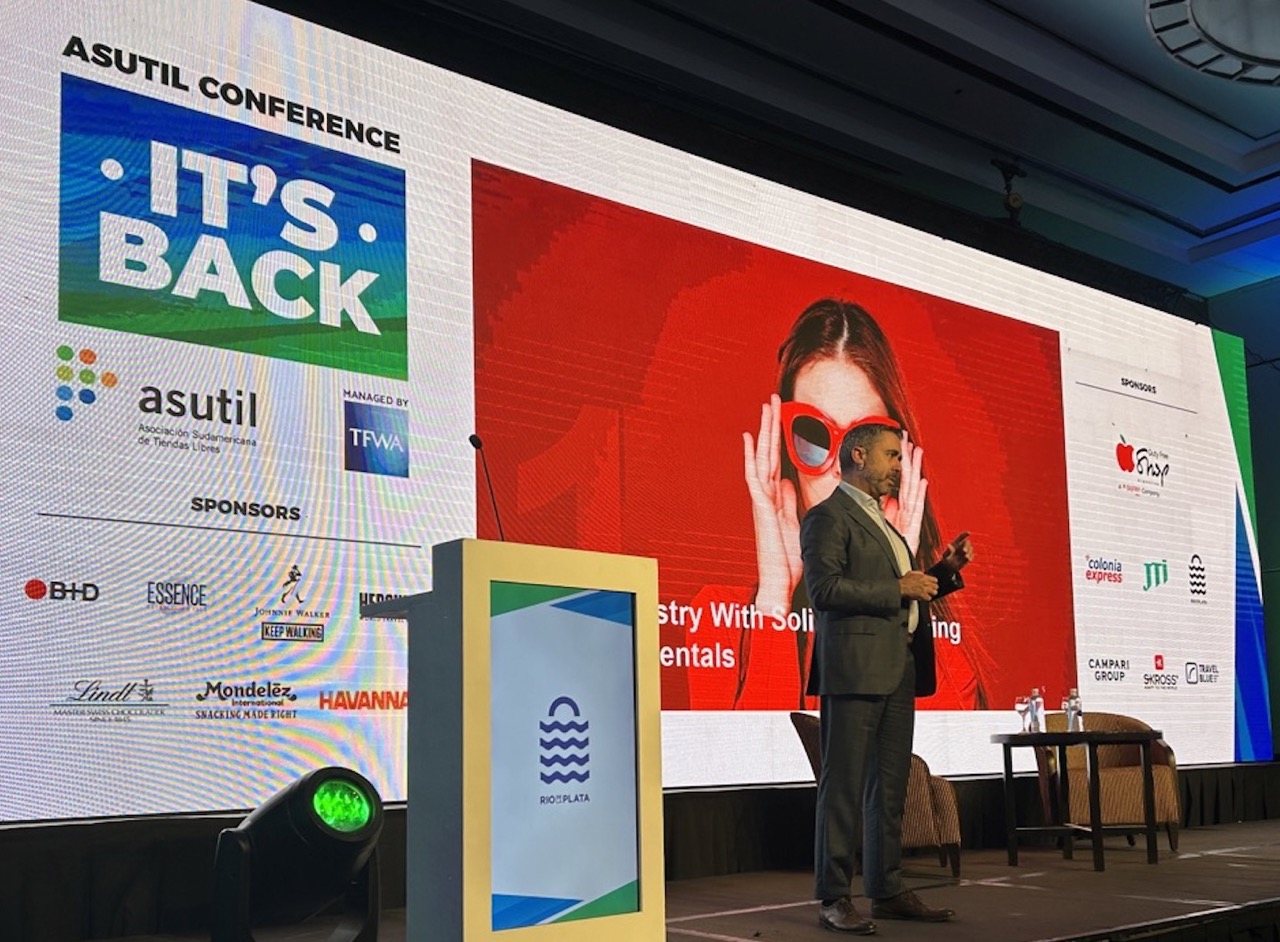
He also offered some fascinating insights into the changing consumer base, including the rise of Gen Y and Z as a proportion of travelling consumers, the influence of digital on shopping habits and the rise of China as a luxury destination.
“We have to adapt and so far we as an industry have not been dynamic enough to capture this change. We must be more adaptable and flexible and offer true experiences to travellers who seek them. And we must do this faster than ever before.”
Rossinyol said that partnership will be at the heart of the industry’s success in taking advantage of new dynamics. “Unless we can increase satisfaction [among consumers] and sales, there is no future.”
Traveller-centricity must be at the core of how the industry approaches the new future, he added.
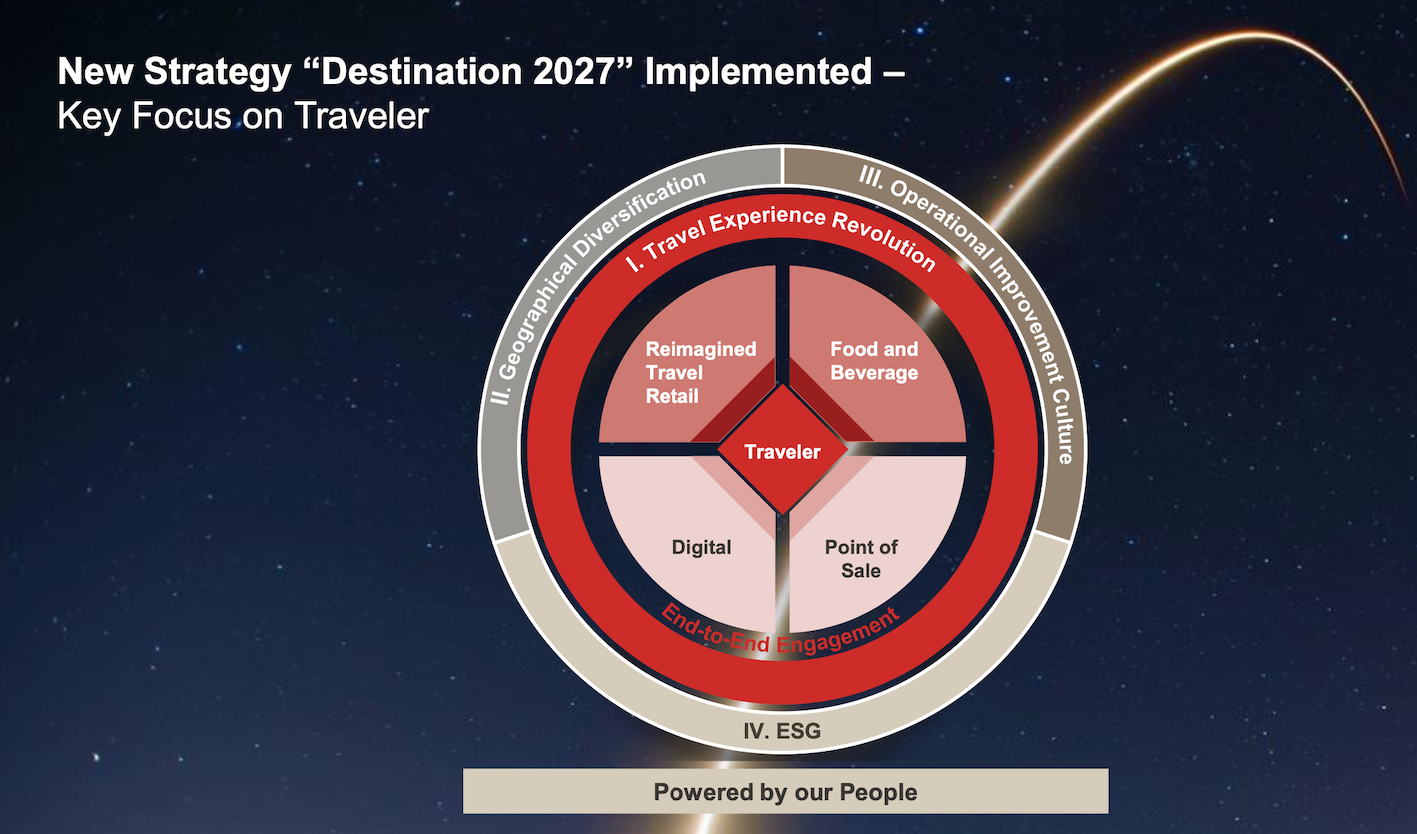
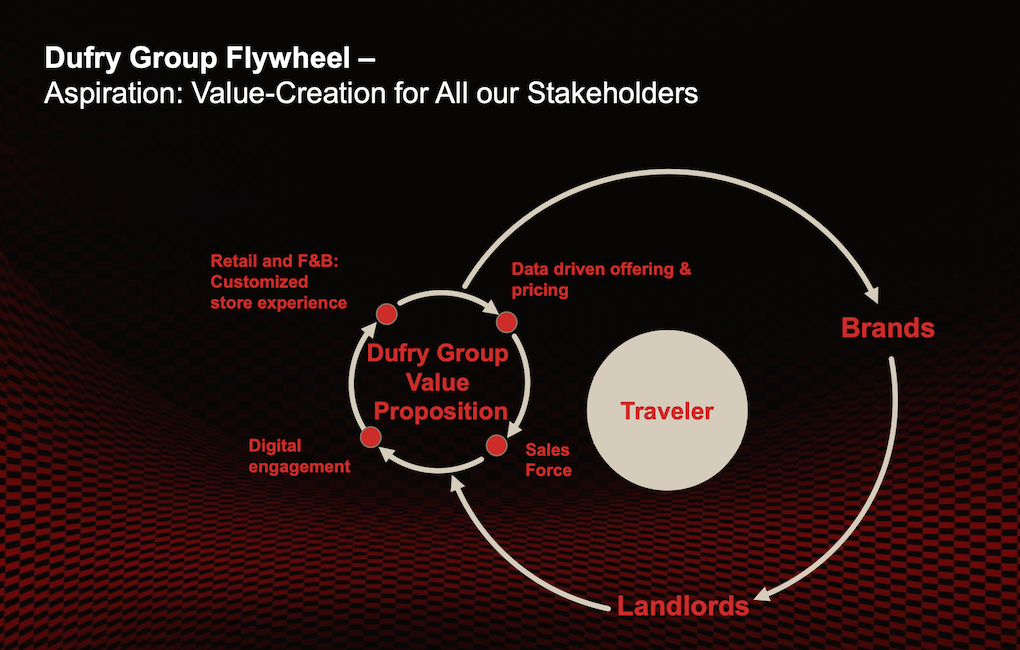
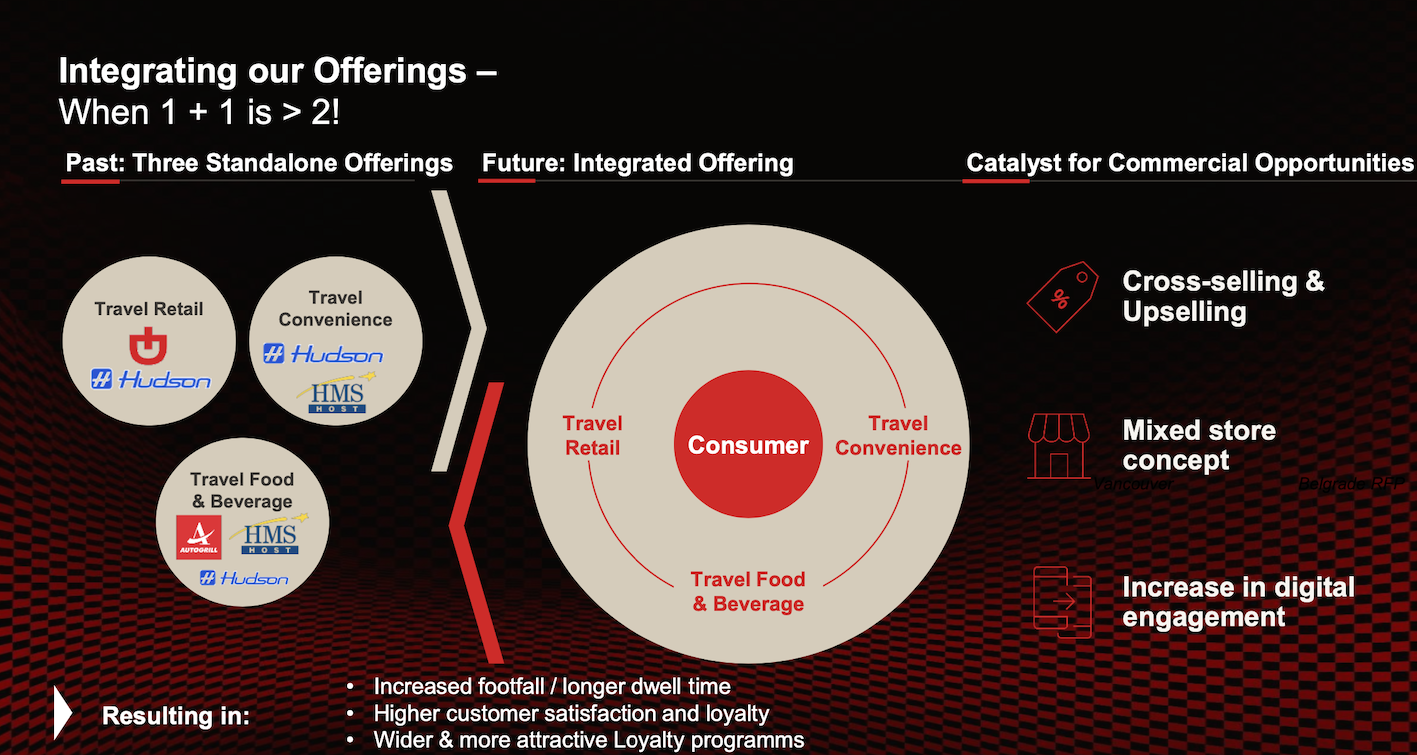

Key elements in this include a firm belief in the future of the physical store or restaurant, complemented by digital engagement before during and after the trip, developing ‘smart stores’, creating fun environments where entertainment is key, alongside flexible spaces that can be adapted quickly to customer needs.
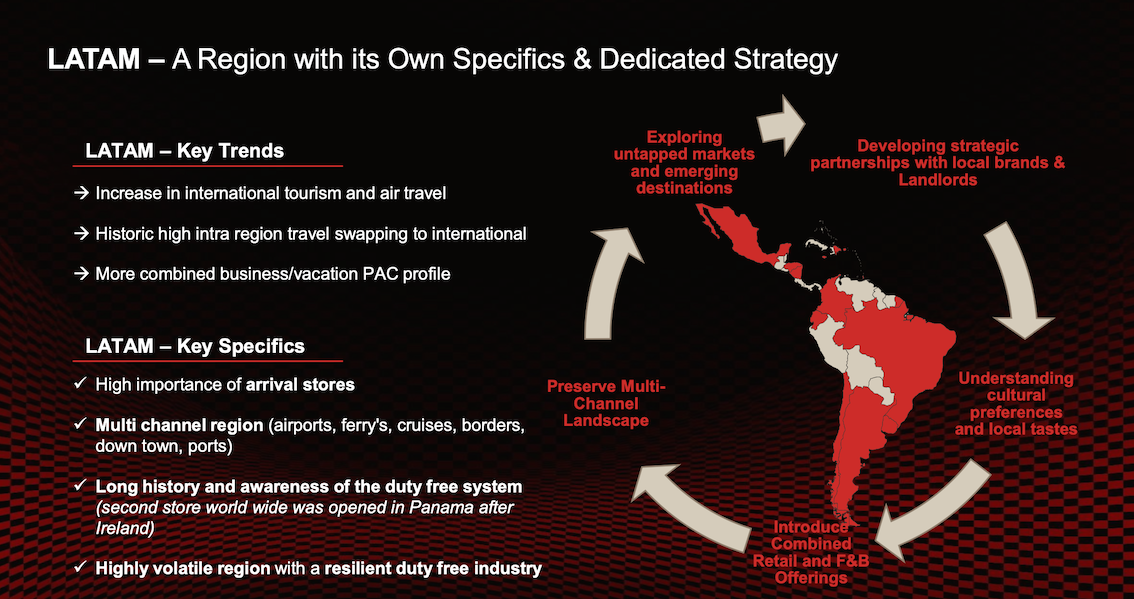
In a telling statement, Rossinyol added: “If we maximise sales together, we all win. If we aim to maximise our own margin, we all lose. As Dufry we are committing to maximising sales in the long term even if it means sacrifices short-term gains. We plan to keep pushing for that.”
On Latin America, Rossinyol outlined some of the specifics of this market, reflecting on the importance of arrivals, the various trading channels and the changing dynamics in travel.
“This region represents a huge tourism opportunity. We are now seeing international travel rising fast, when before this was more of an intra-regional travel market. Also, one day the billions of Asian consumers will discover Latin America, which is another long-term opportunity.”
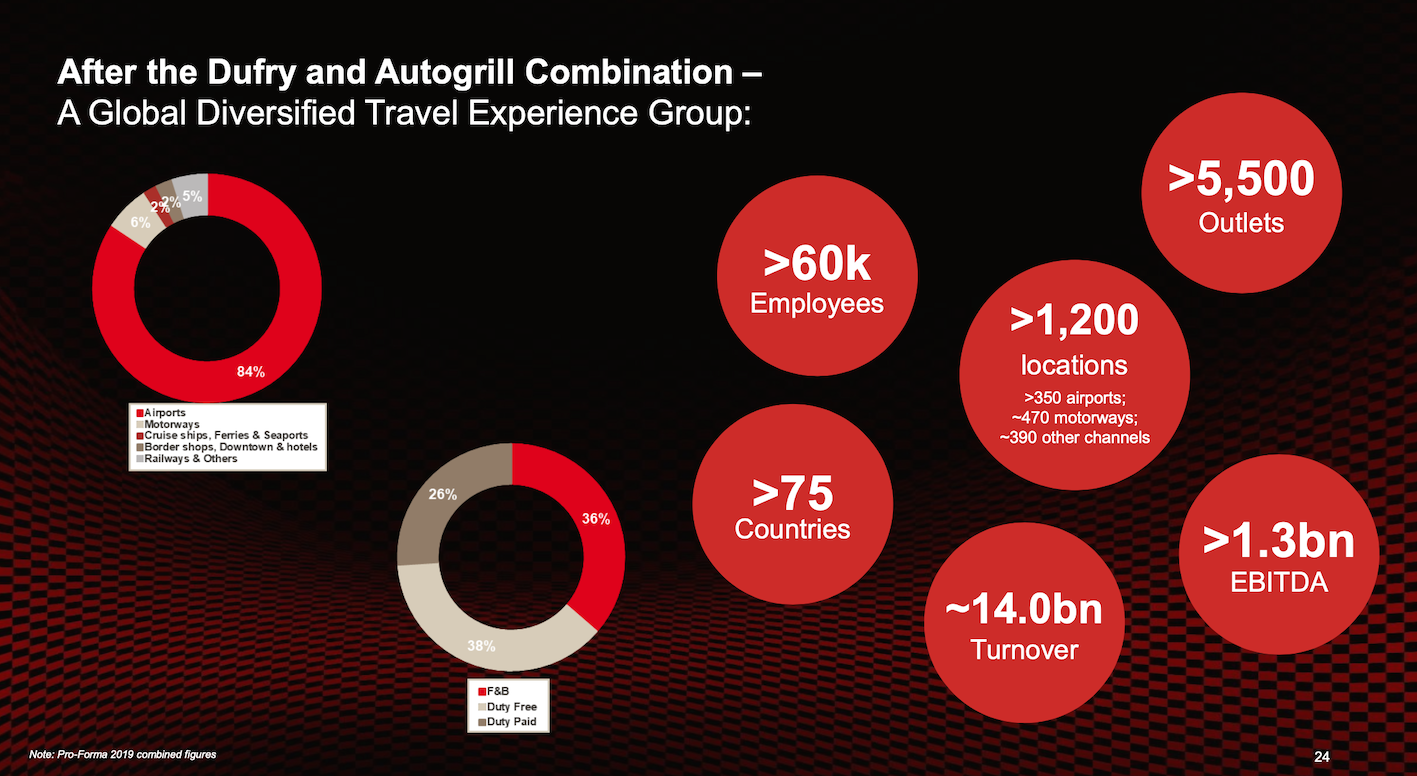
On using the group’s new scale in combination with Autogrill, Rossinyol said: “We have scale but we don’t want to be big for its own sake. We want to leverage that and use the wealth of data we have to build further. Also, we are big but we are also fast and plan to be faster.”
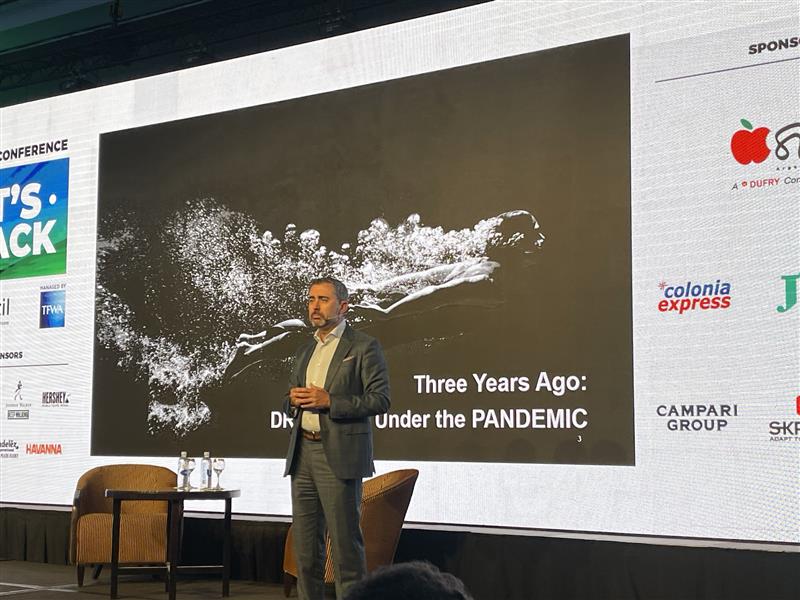
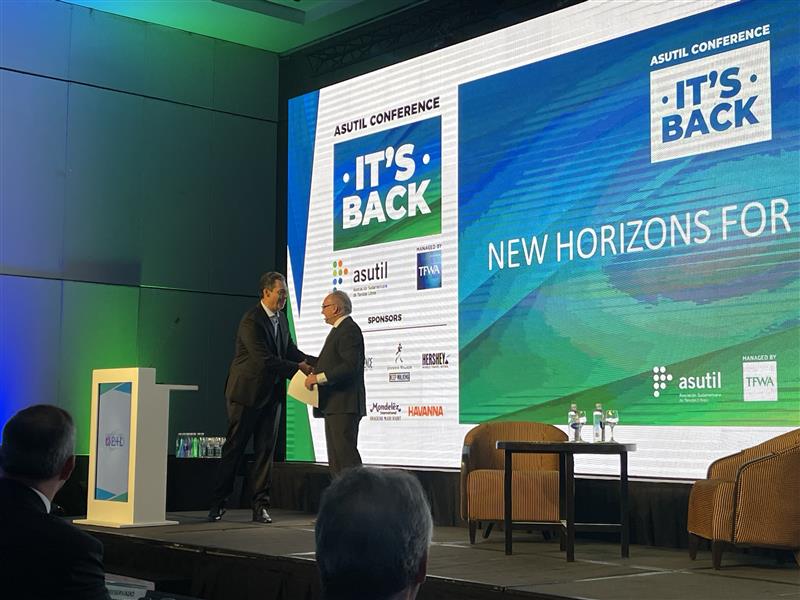
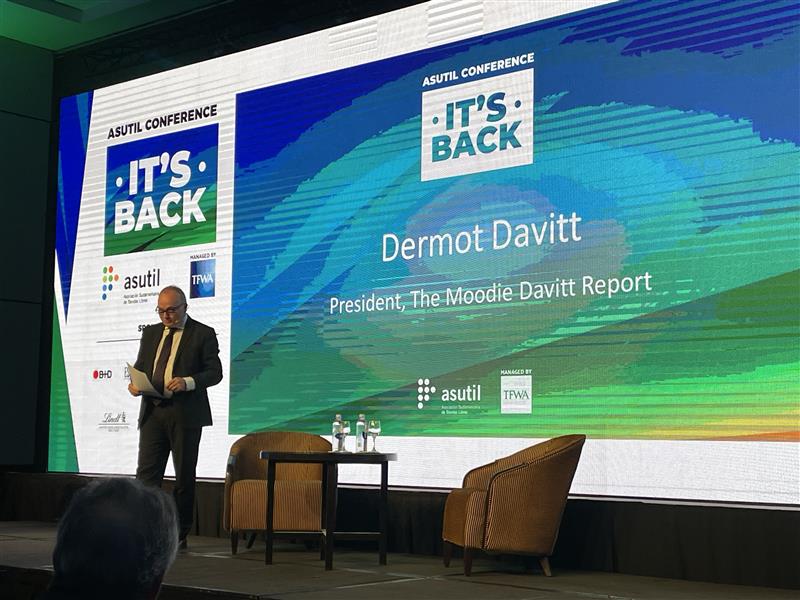
The event was opened this morning by ASUTIL President (and Dufry COO South America) Gustavo Fagundes and Secretary General José Luis Donagaray. Fagundes hailed the event’s return, with numbers running close to those at the last ASUTIL Conference in Rio de Janeiro in 2017, while also saluting the high quality of visitor attendees from across the travel retail community.
